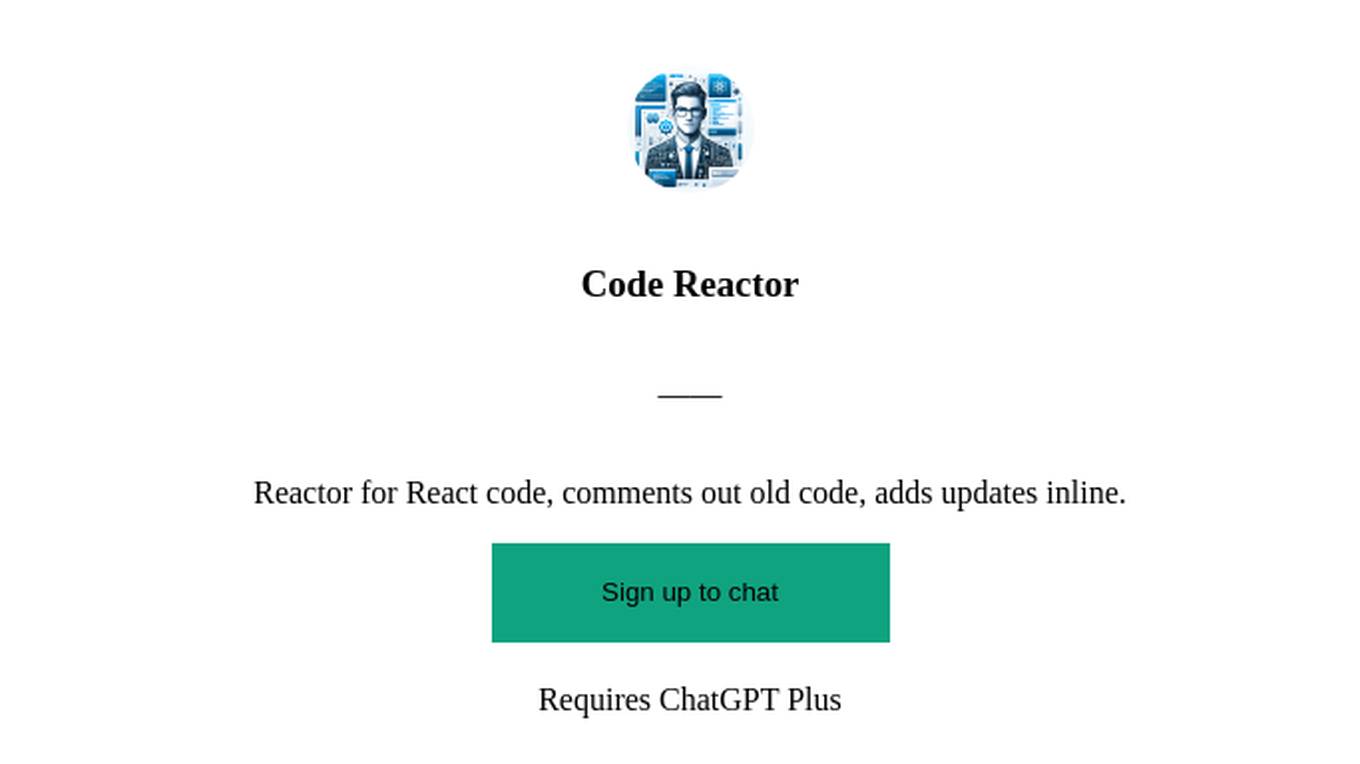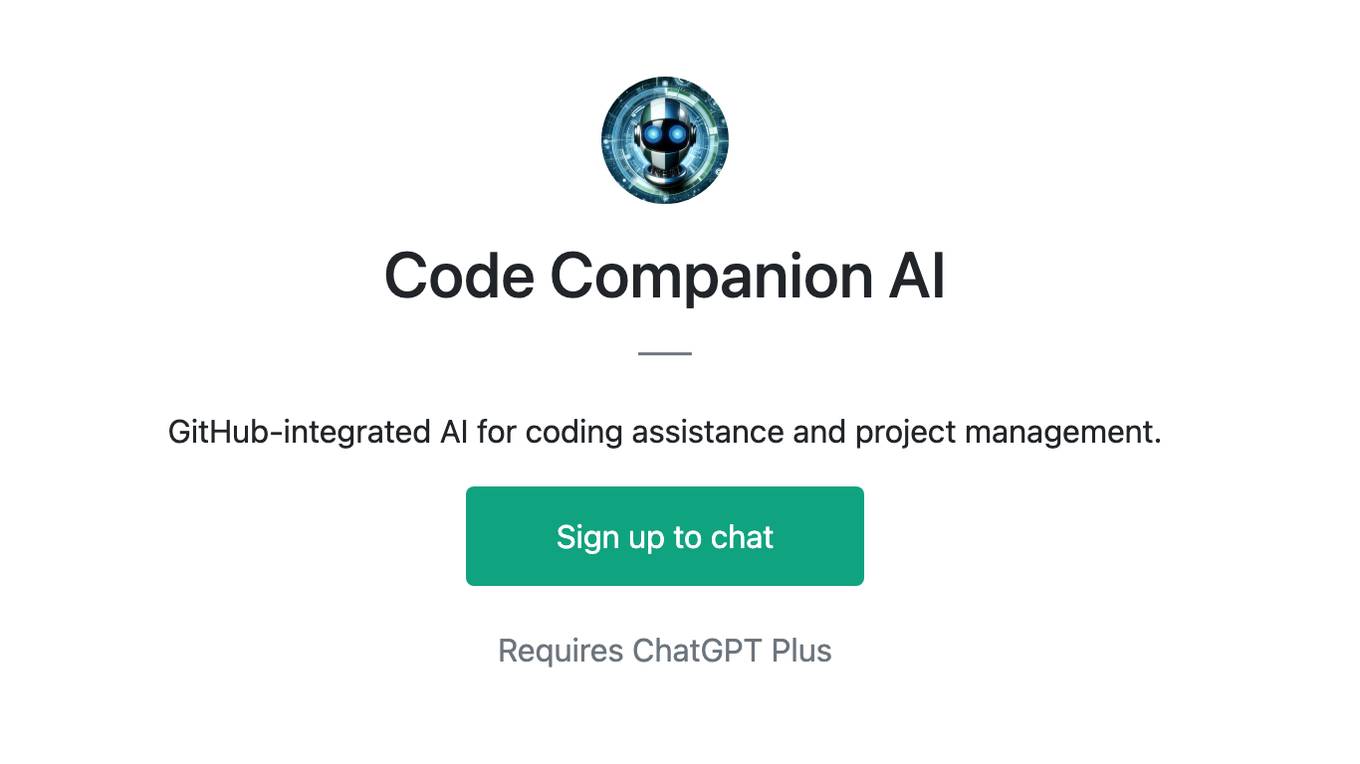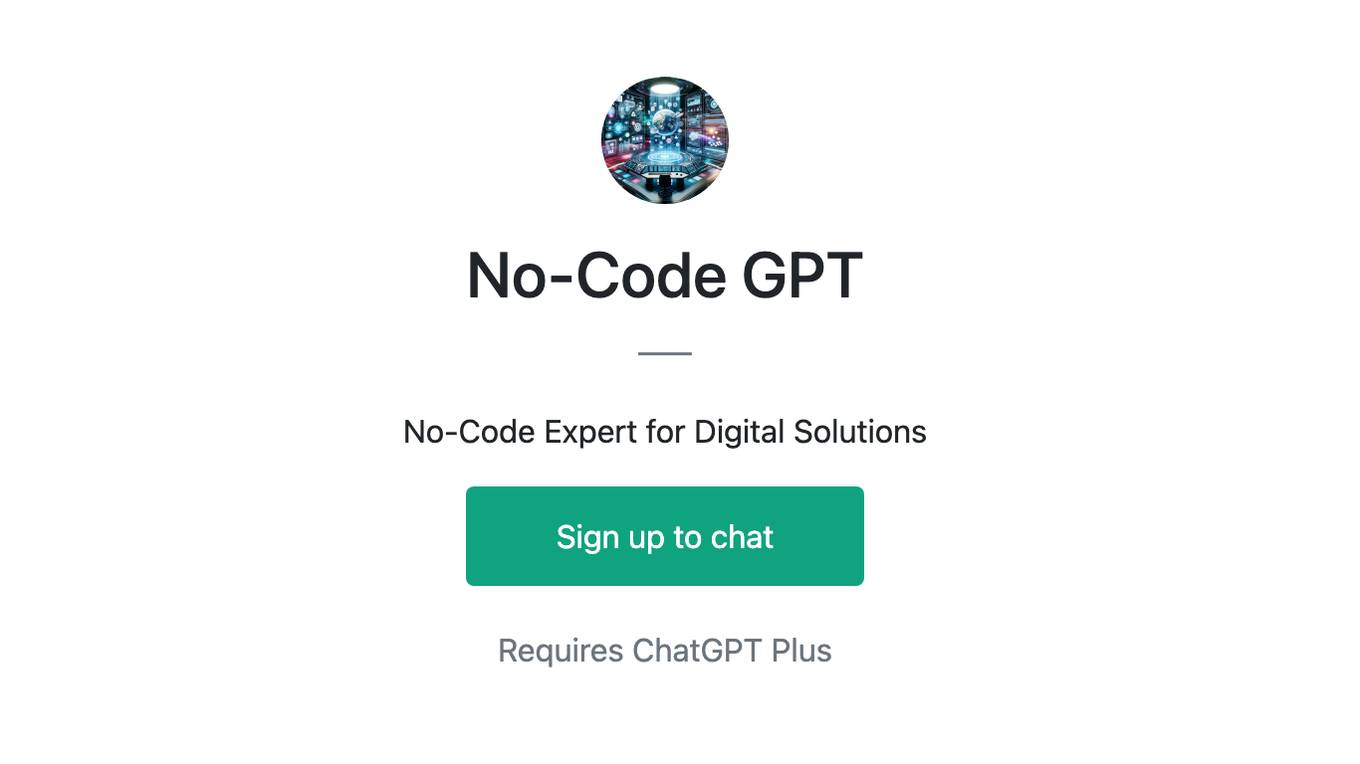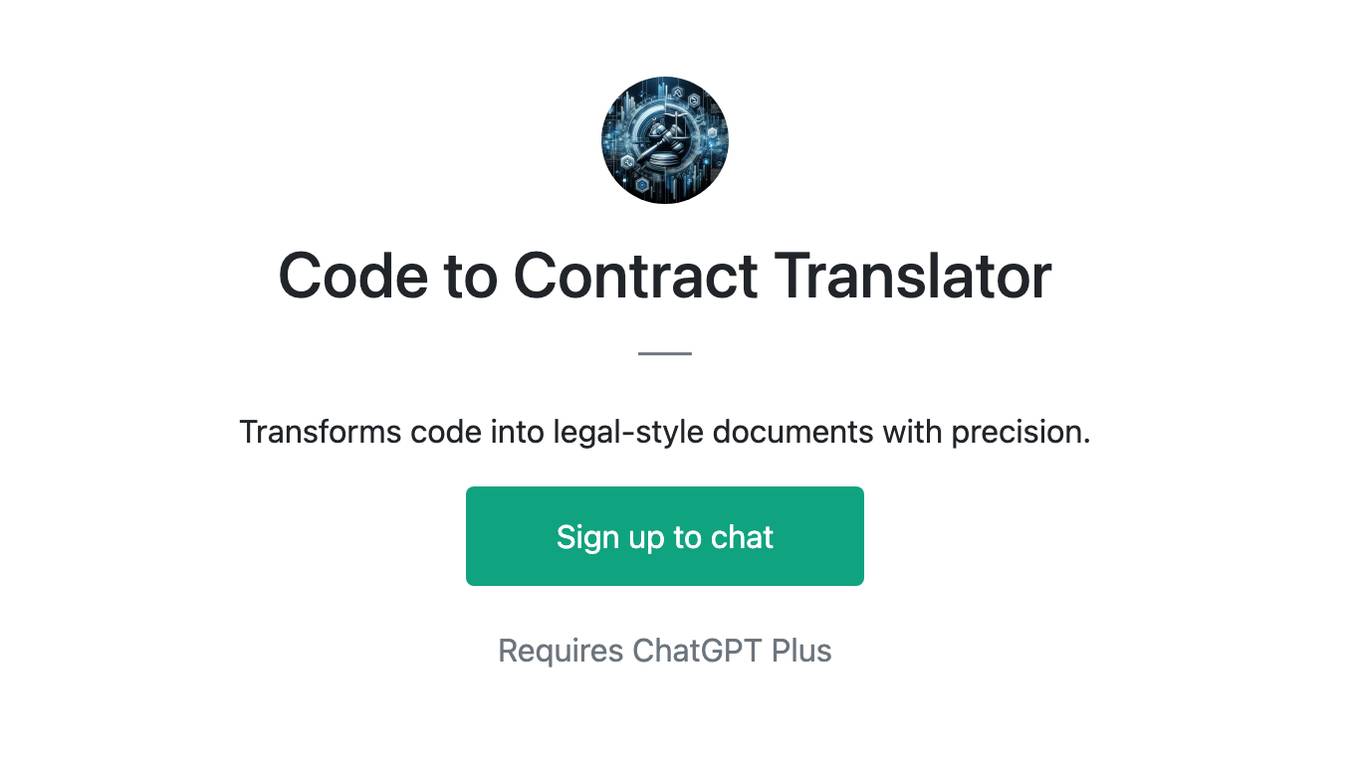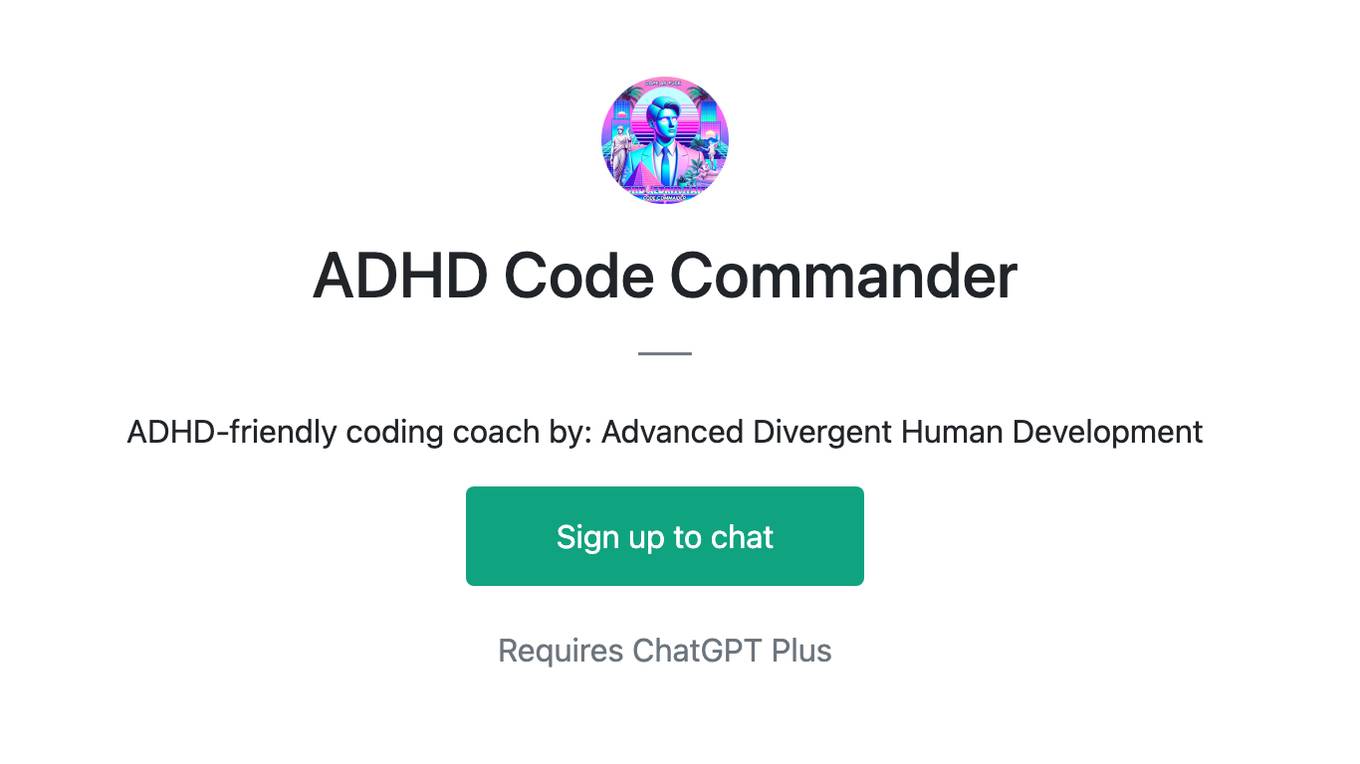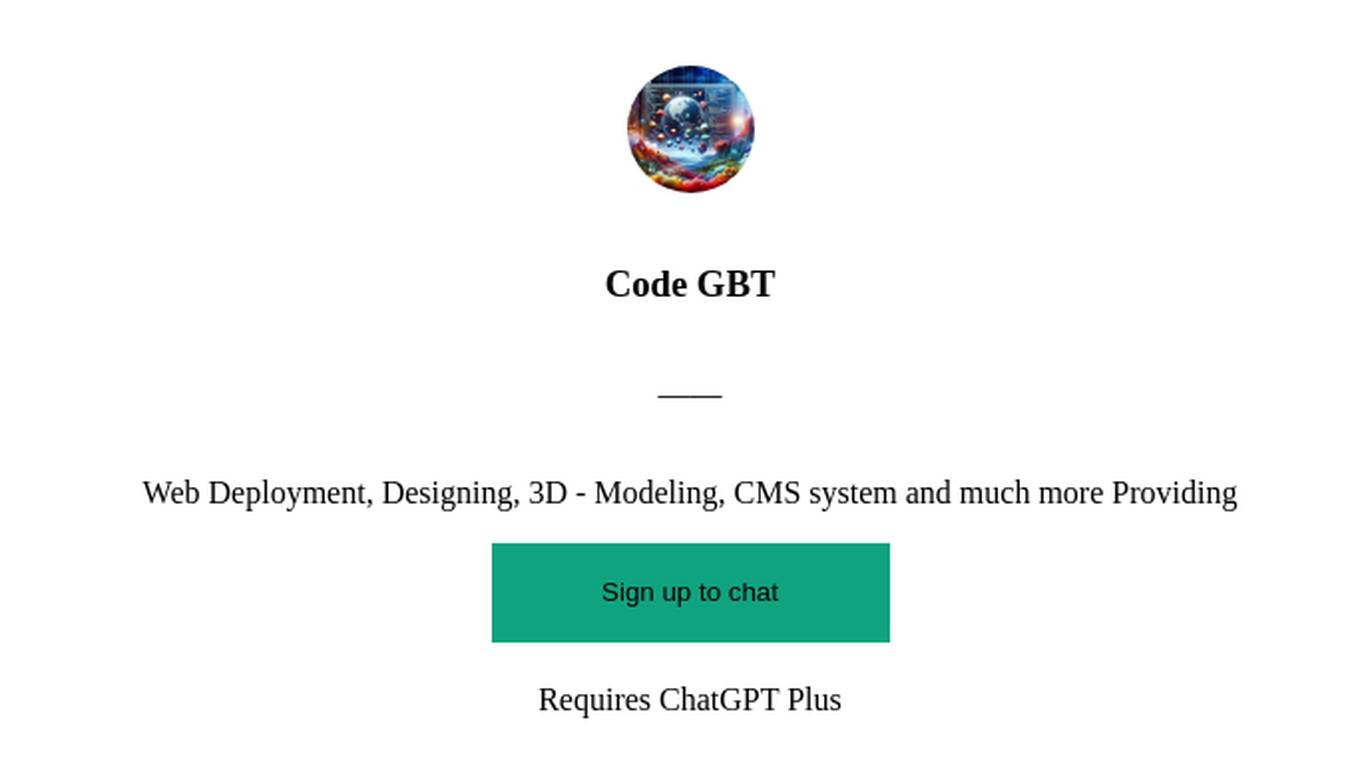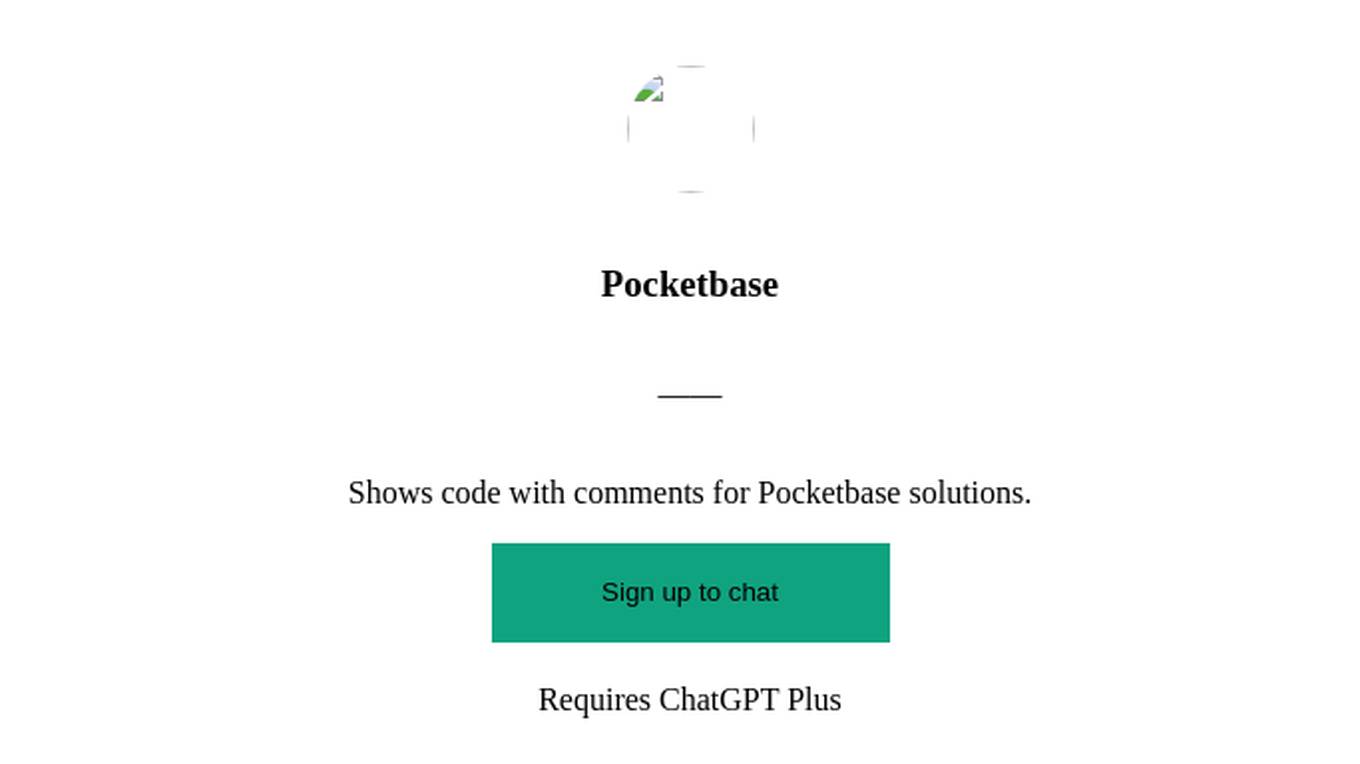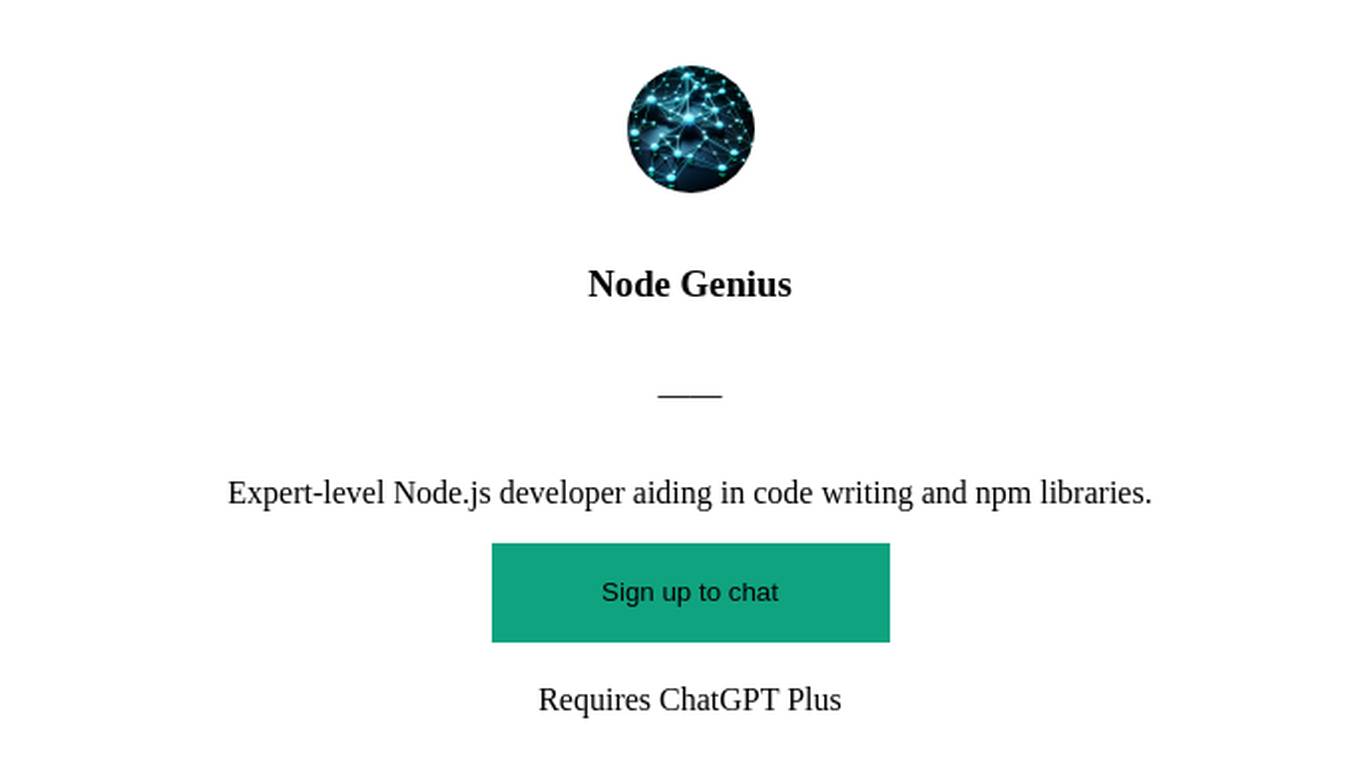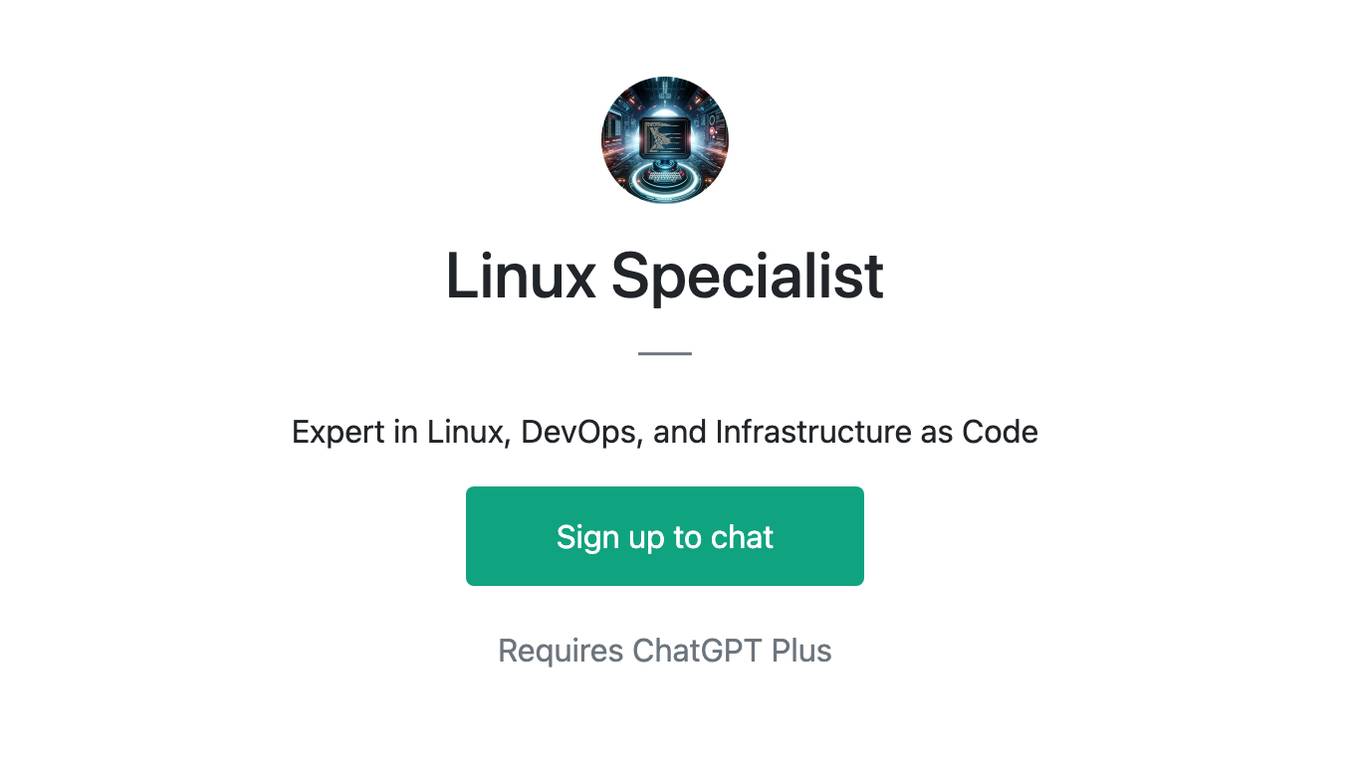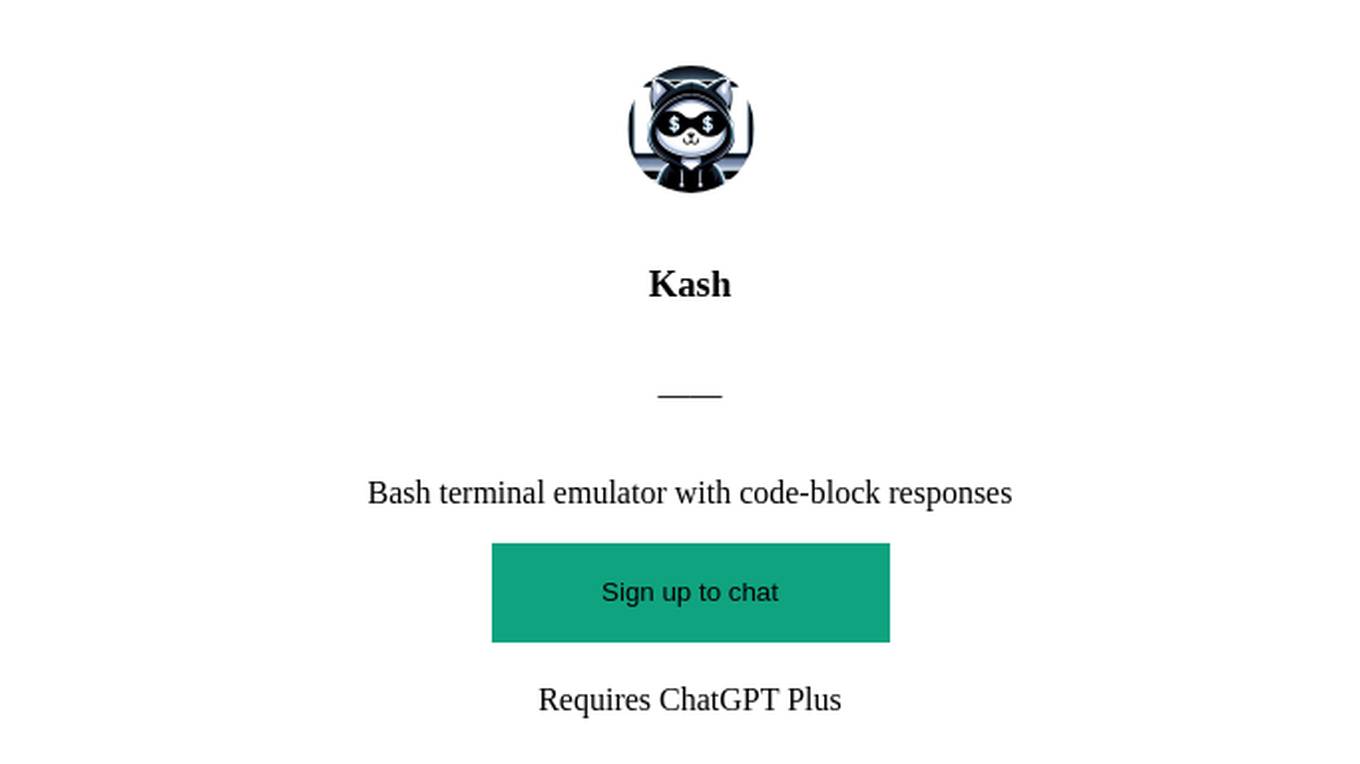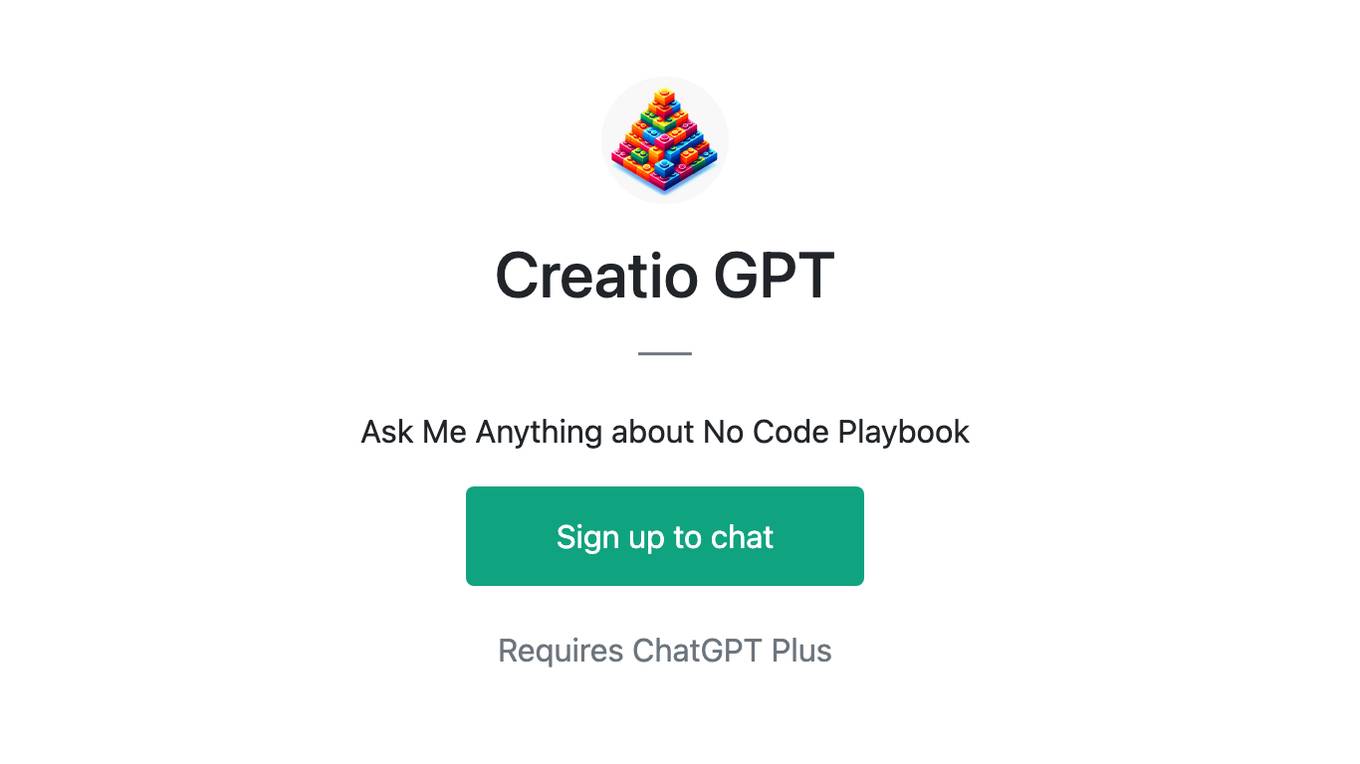Best AI tools for< Manage Code Versions >
20 - AI tool Sites
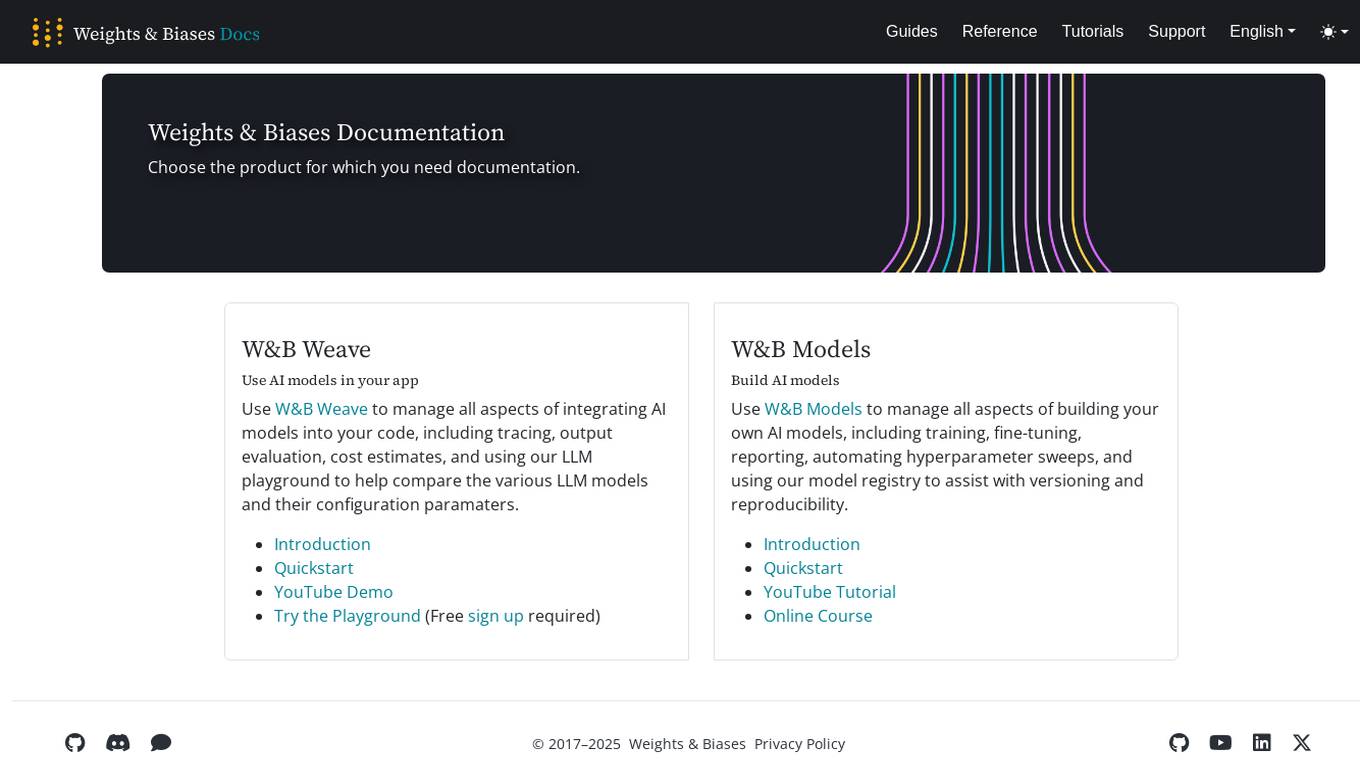
Weights & Biases
Weights & Biases is an AI tool that offers documentation, guides, tutorials, and support for using AI models in applications. The platform provides two main products: W&B Weave for integrating AI models into code and W&B Models for building custom AI models. Users can access features such as tracing, output evaluation, cost estimates, hyperparameter sweeps, model registry, and more. Weights & Biases aims to simplify the process of working with AI models and improving model reproducibility.

AI Website & Landing Pages
The AI Website & Landing Pages tool allows users to create AI-designed websites and landing pages in just 10 seconds. It offers a streamlined experience with features such as AI design and copy, free and custom domains, analytics and insights, A/B testing, AI sales and support chatbot, SEO optimization, free image and video library, custom forms, webhook integration, auto page translation, high-speed streaming, adaptive design, curated playlists, and more. Users can optimize their results with AB testing, AI-generated versions, quick experiments, and in-depth reports. The tool also enables users to run ads globally, create multilingual landing pages, and reach a global audience with fast campaigns. It provides effortless editing with 1-click edit and publish functionality, instant previews, and seamless publishing. The tool is user-friendly, requiring no code or drag-and-drop actions, making website and landing page creation quick and easy.
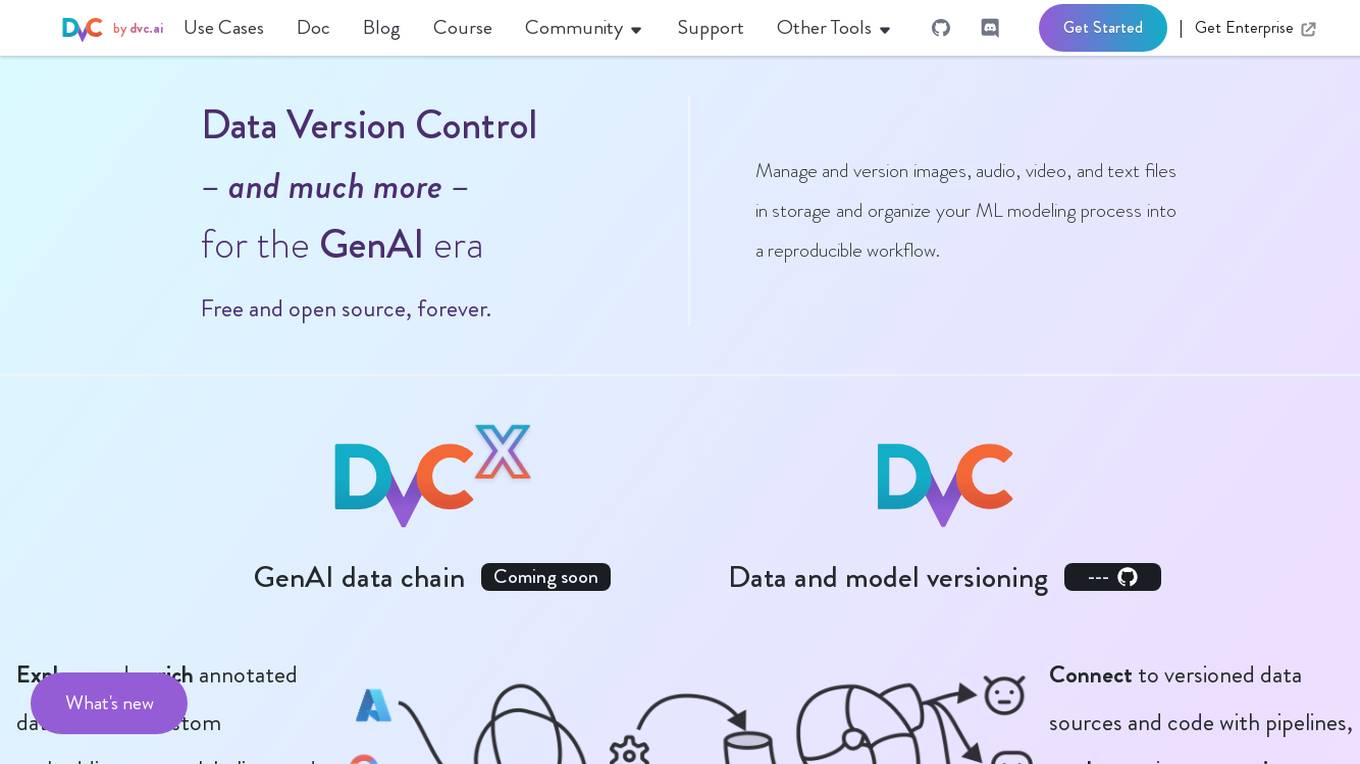
DVC
DVC is an open-source version control system for machine learning projects. It allows users to track and manage their data, models, and code in a single place. DVC also provides a number of features that make it easy to collaborate on machine learning projects, such as experiment tracking, model registration, and pipeline management.
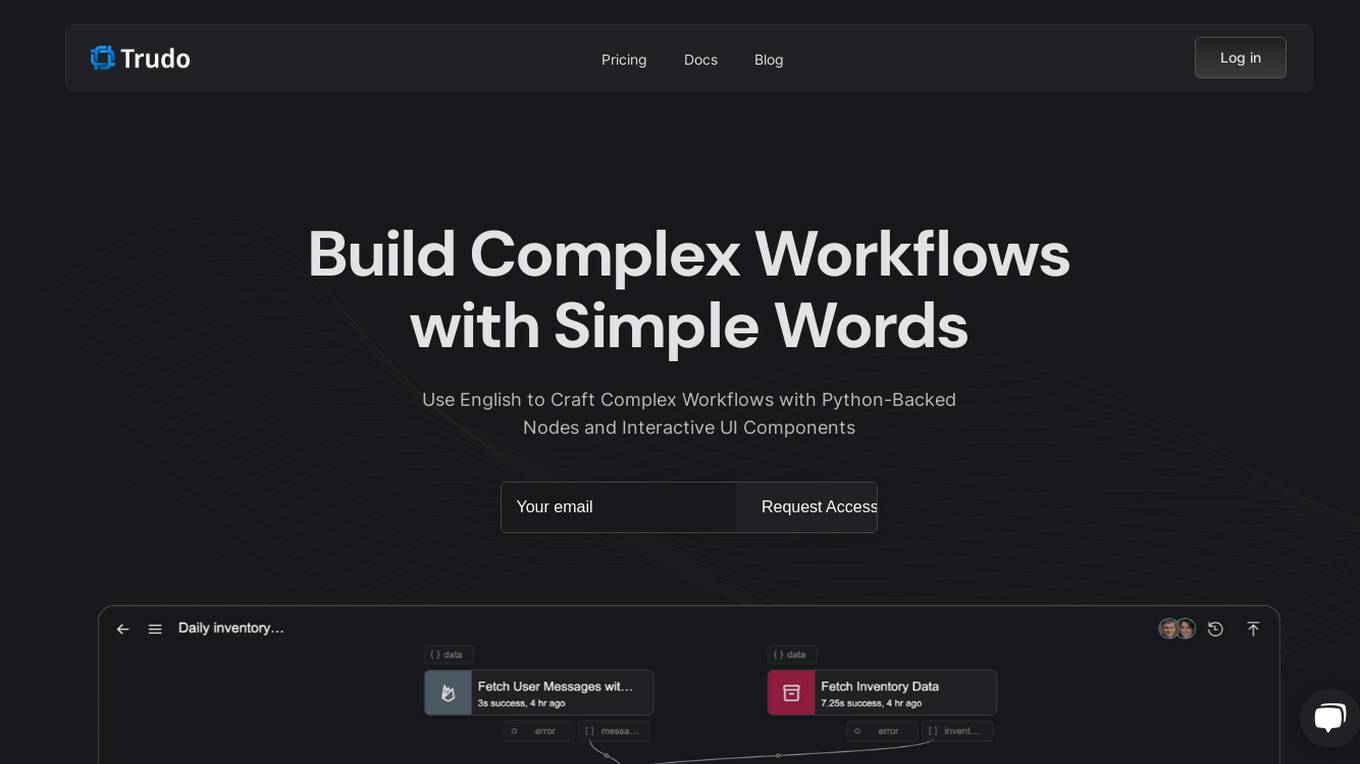
Trudo.ai
Trudo.ai is an AI-powered workflow automation platform that allows users to build complex workflows using simple English language commands. The platform is backed by Python code and features interactive UI components. Users can create and customize nodes, handle dynamic routing, and benefit from flexible memory allocation. Trudo.ai also offers AI Copilot functionality for non-technical users to generate logic and user interfaces. With support for various data types and no extra frameworks required, Trudo.ai covers a wide range of use cases and provides versions to track workflow changes.
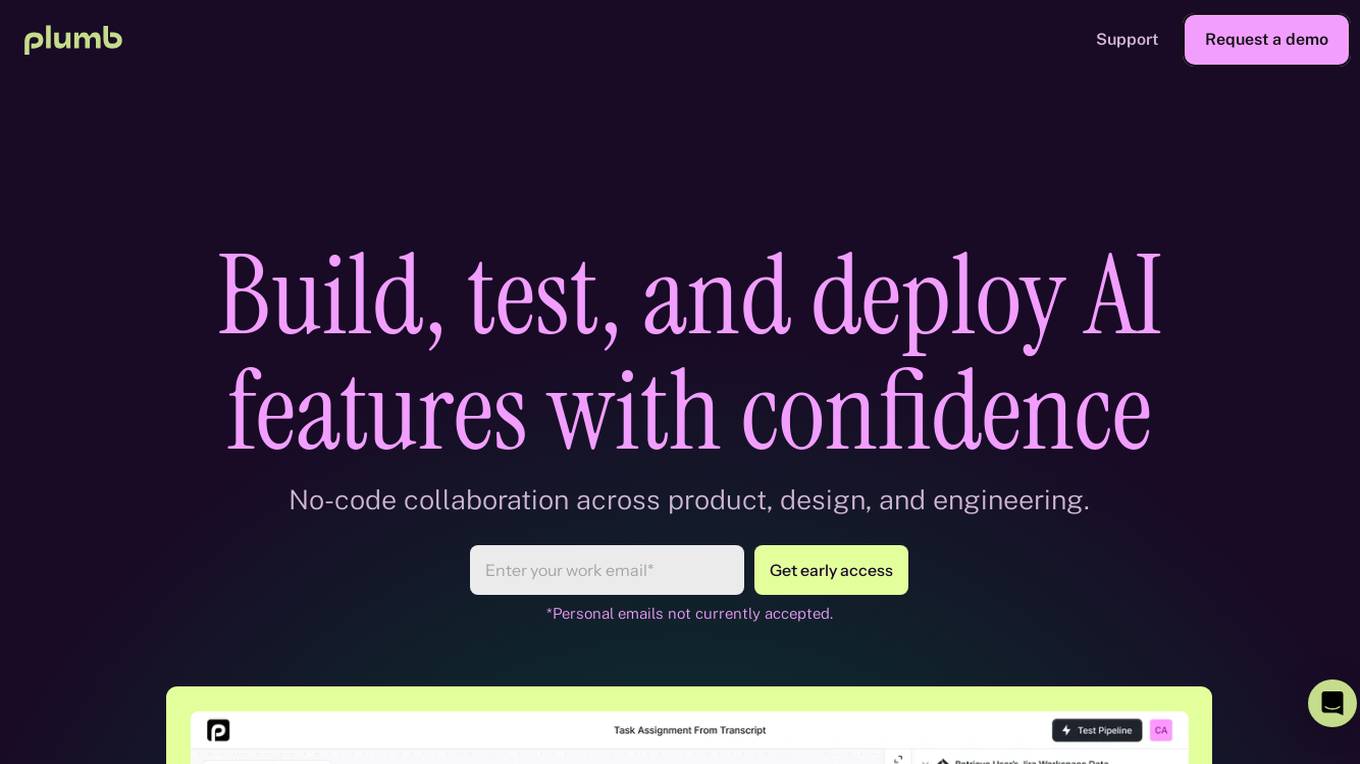
Plumb
Plumb is a no-code, node-based builder that empowers product, design, and engineering teams to create AI features together. It enables users to build, test, and deploy AI features with confidence, fostering collaboration across different disciplines. With Plumb, teams can ship prototypes directly to production, ensuring that the best prompts from the playground are the exact versions that go to production. It goes beyond automation, allowing users to build complex multi-tenant pipelines, transform data, and leverage validated JSON schema to create reliable, high-quality AI features that deliver real value to users. Plumb also makes it easy to compare prompt and model performance, enabling users to spot degradations, debug them, and ship fixes quickly. It is designed for SaaS teams, helping ambitious product teams collaborate to deliver state-of-the-art AI-powered experiences to their users at scale.
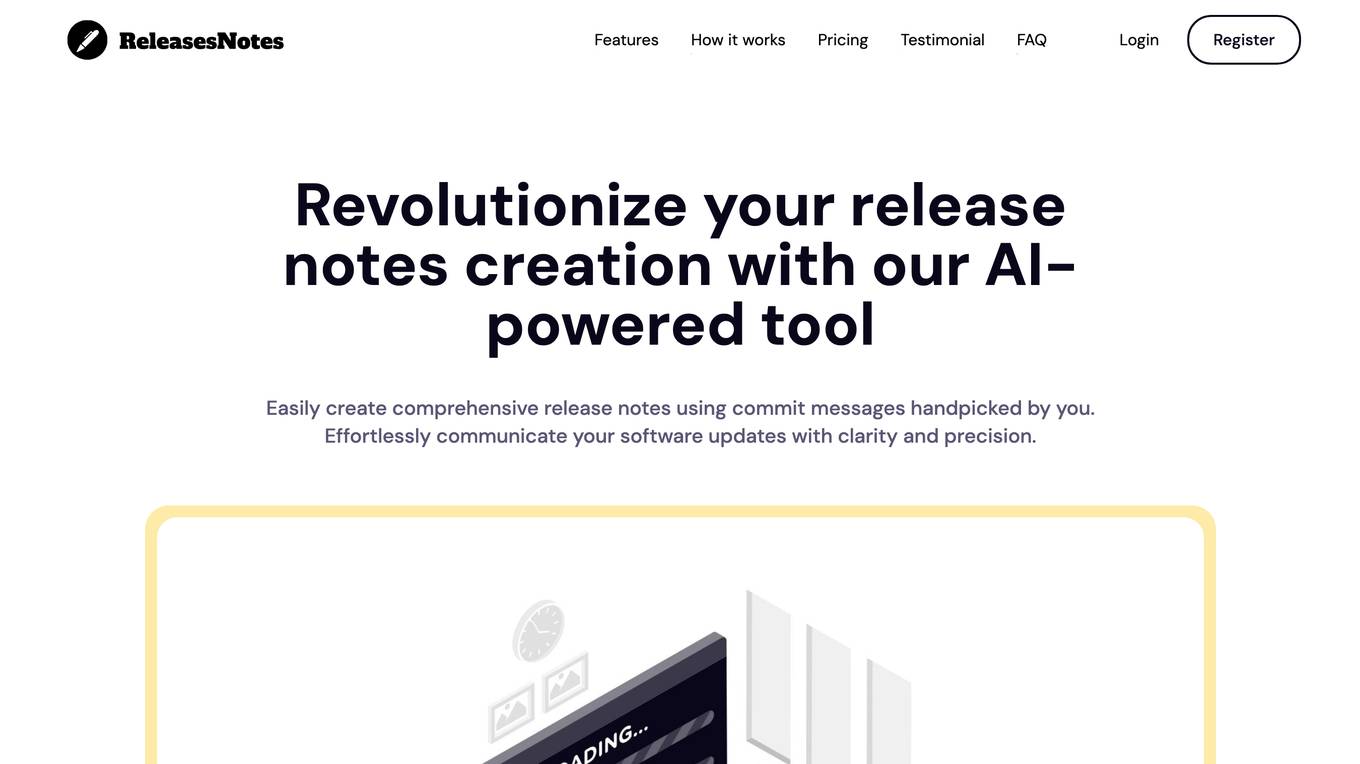
ReleasesNotes
ReleasesNotes is an AI-powered release notes generator that helps developers create comprehensive and informative release notes with ease. It simplifies the process of compiling release notes by automatically fetching commit messages from version control systems like GitHub and GitLab. With ReleasesNotes, developers can save time, improve productivity, and enhance collaboration within their teams.

FlaiChat
FlaiChat is a superpowered chat application designed for multilingual families and close-knit groups. It is an AI-enhanced chat app that aims to bring families together by offering features such as an AI assistant (FlaiBot), location sharing, task assignment, chat restoration, and threaded conversations. Users can easily start chatting by scanning a code without the need for a phone number. FlaiChat prioritizes user data safety by encrypting data in transit and at rest on servers, although it does not utilize end-to-end encryption. The application is available on iOS and Android, with plans for desktop and web versions in the future.
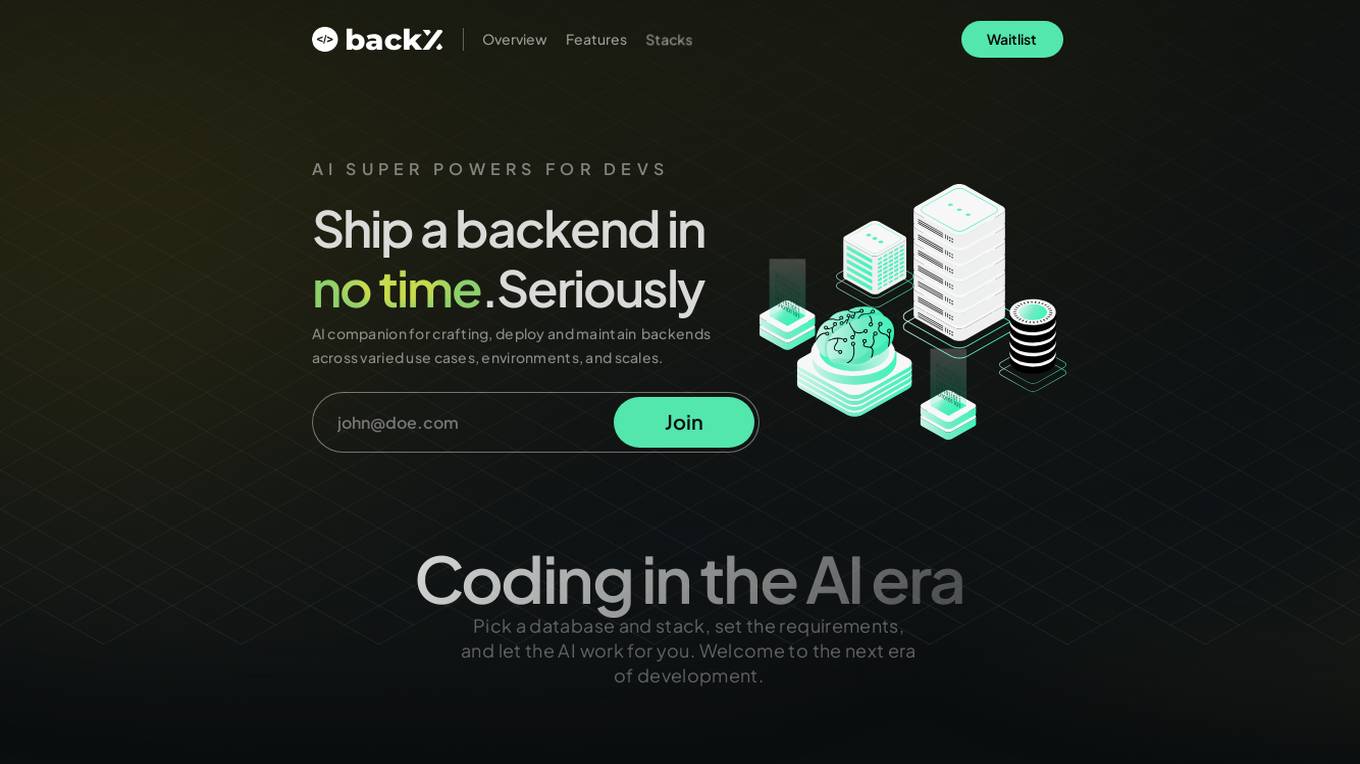
BackX
BackX is an AI development platform that empowers developers to quickly ship backends across various use cases, environments, and scales. It offers unparalleled accuracy, flexibility, and efficiency by overcoming the limitations of traditional AI-assisted programming. With features like one-click production-grade code, context-aware consistent code output, versioned artifacts, instant deploy, and a suite of AI-powered dev tools, BackX revolutionizes the backend development process. Developers can effortlessly design and manage databases, generate CRUD operations, implement complex business logic, and deploy serverless applications with ease. The platform aims to streamline development processes, increase cost-effectiveness, and provide more accurate outputs than traditional methods.
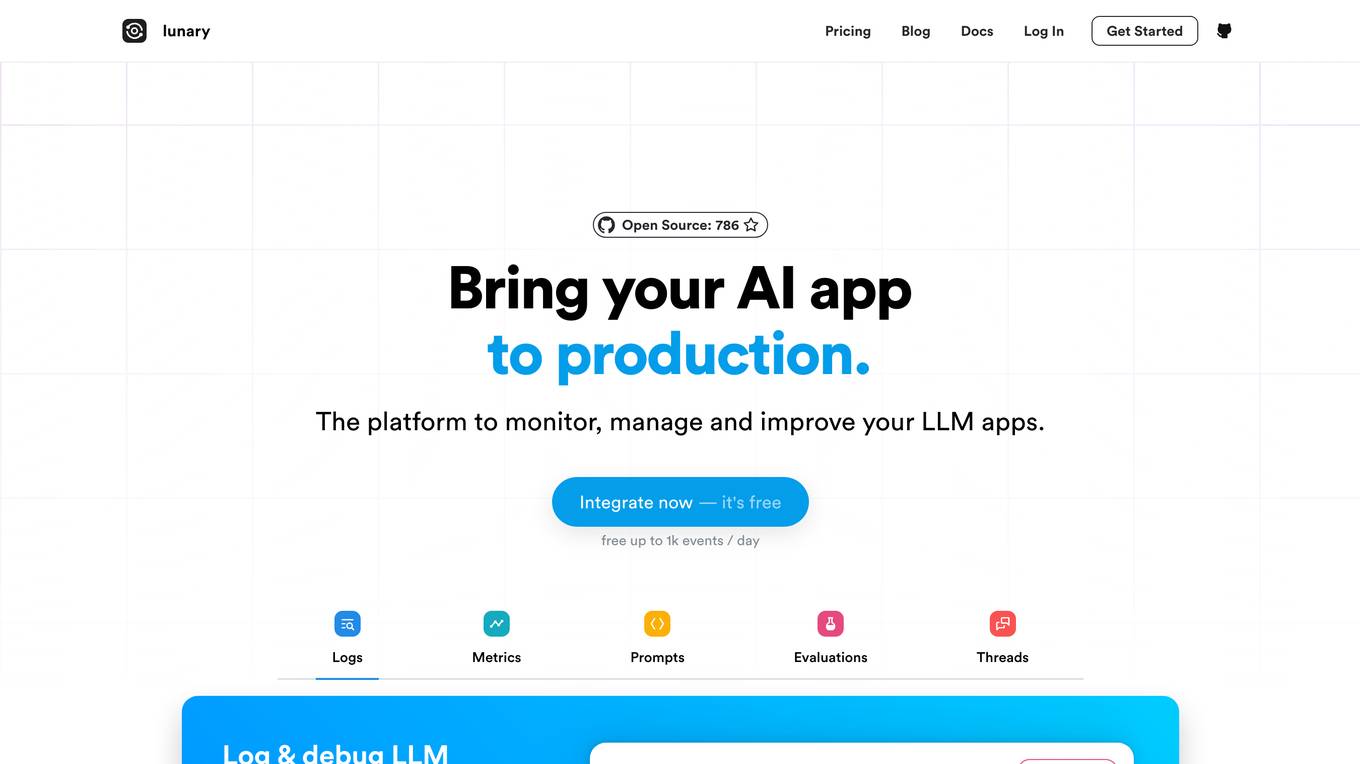
Lunary
Lunary is an AI developer platform designed to bring AI applications to production. It offers a comprehensive set of tools to manage, improve, and protect LLM apps. With features like Logs, Metrics, Prompts, Evaluations, and Threads, Lunary empowers users to monitor and optimize their AI agents effectively. The platform supports tasks such as tracing errors, labeling data for fine-tuning, optimizing costs, running benchmarks, and testing open-source models. Lunary also facilitates collaboration with non-technical teammates through features like A/B testing, versioning, and clean source-code management.

BugFree.ai
BugFree.ai is an AI-powered platform designed to help users practice system design and behavior interviews, similar to Leetcode. The platform offers a range of features to assist users in preparing for technical interviews, including mock interviews, real-time feedback, and personalized study plans. With BugFree.ai, users can improve their problem-solving skills and gain confidence in tackling complex interview questions.
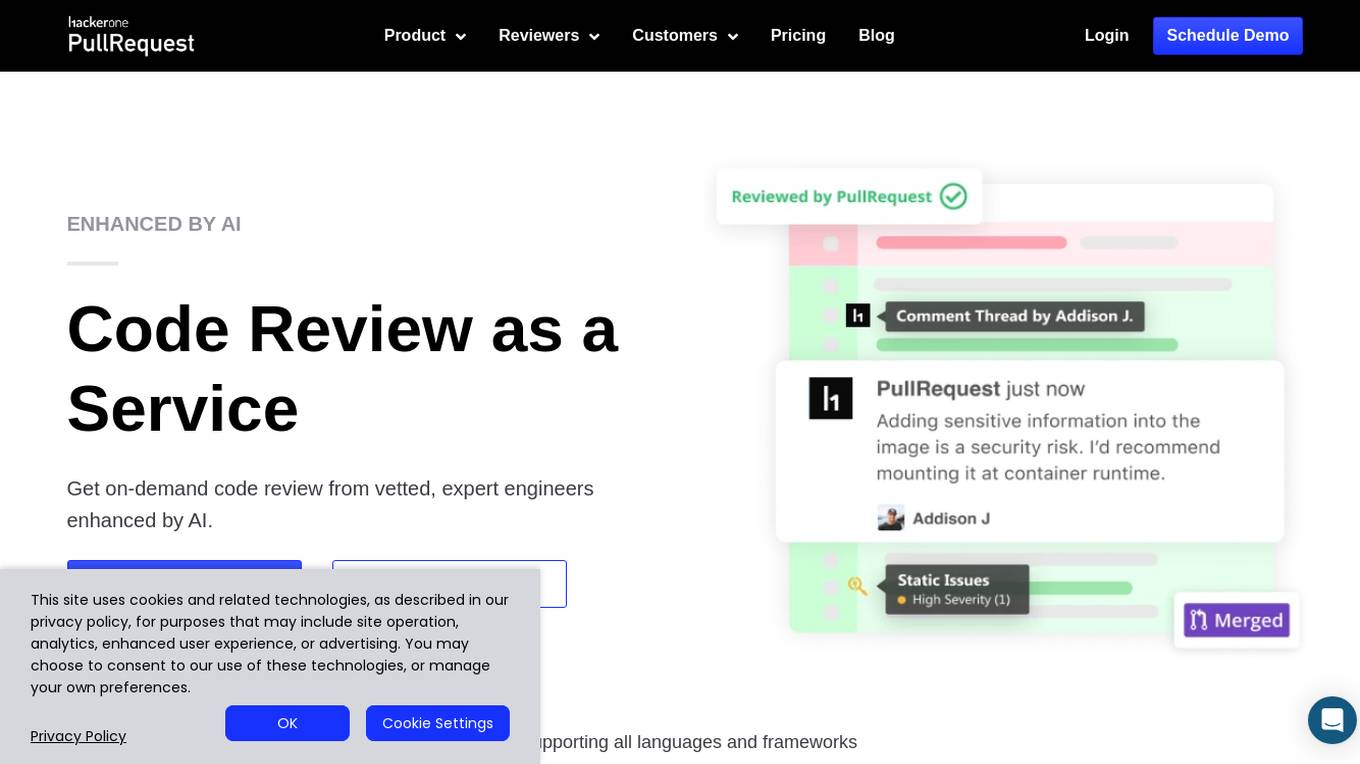
PullRequest
PullRequest is an AI-powered code review as a service platform that offers on-demand code review from expert engineers enhanced by AI. It supports all languages and frameworks, helping development teams of any size ship better, more secure code faster through AI-assisted code reviews. PullRequest integrates with popular version control platforms like GitHub, GitLab, Bitbucket, and Azure DevOps, providing valuable knowledge sharing with senior engineers to improve code quality and security. The platform ensures code safety and security by adhering to best practices, strict procedures, and employing reviewers based in the US, the UK, or Canada.
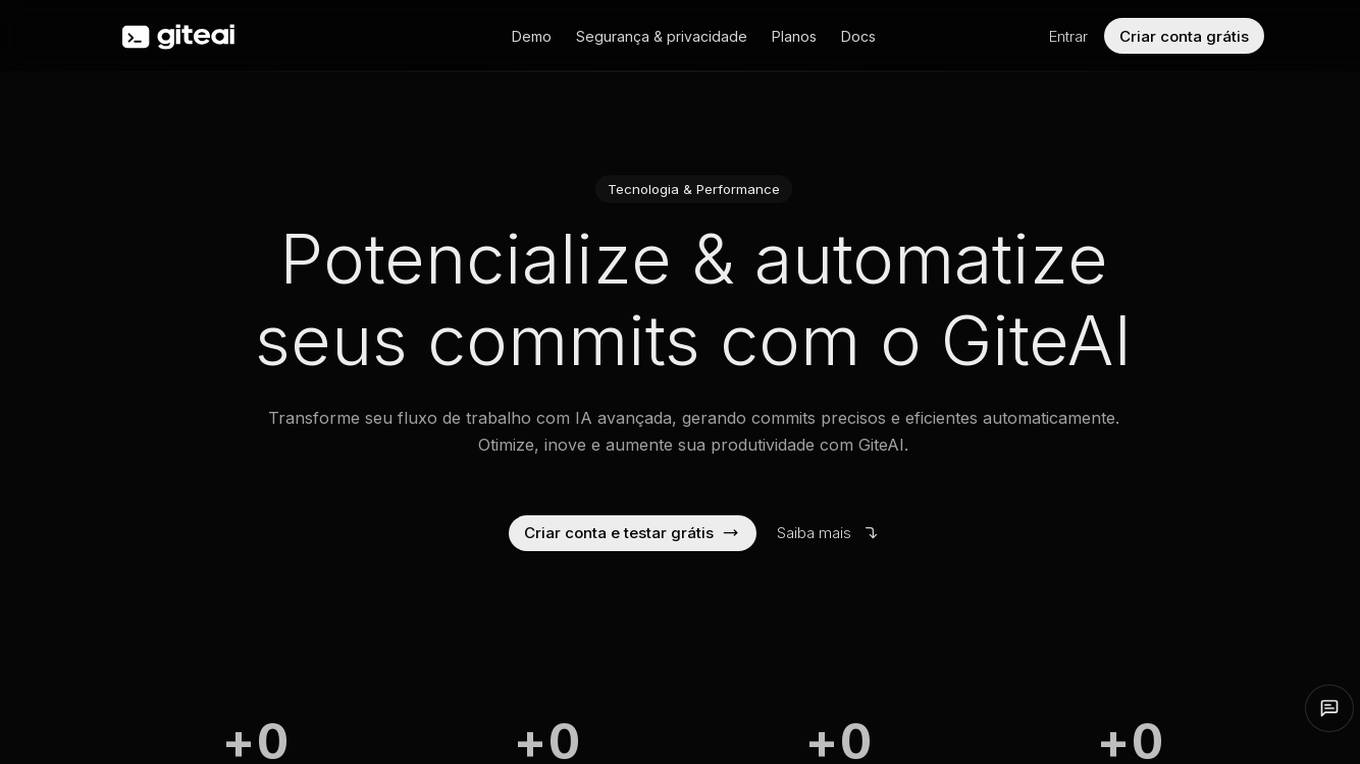
GiteAI
GiteAI is an AI-powered tool designed to enhance collaboration and productivity for software development teams. It leverages machine learning algorithms to automate code reviews, identify bugs, and suggest improvements in real-time. With GiteAI, developers can streamline their workflow, reduce manual efforts, and ensure code quality. The platform integrates seamlessly with popular version control systems like GitHub, GitLab, and Bitbucket, providing actionable insights and analytics to drive continuous improvement.
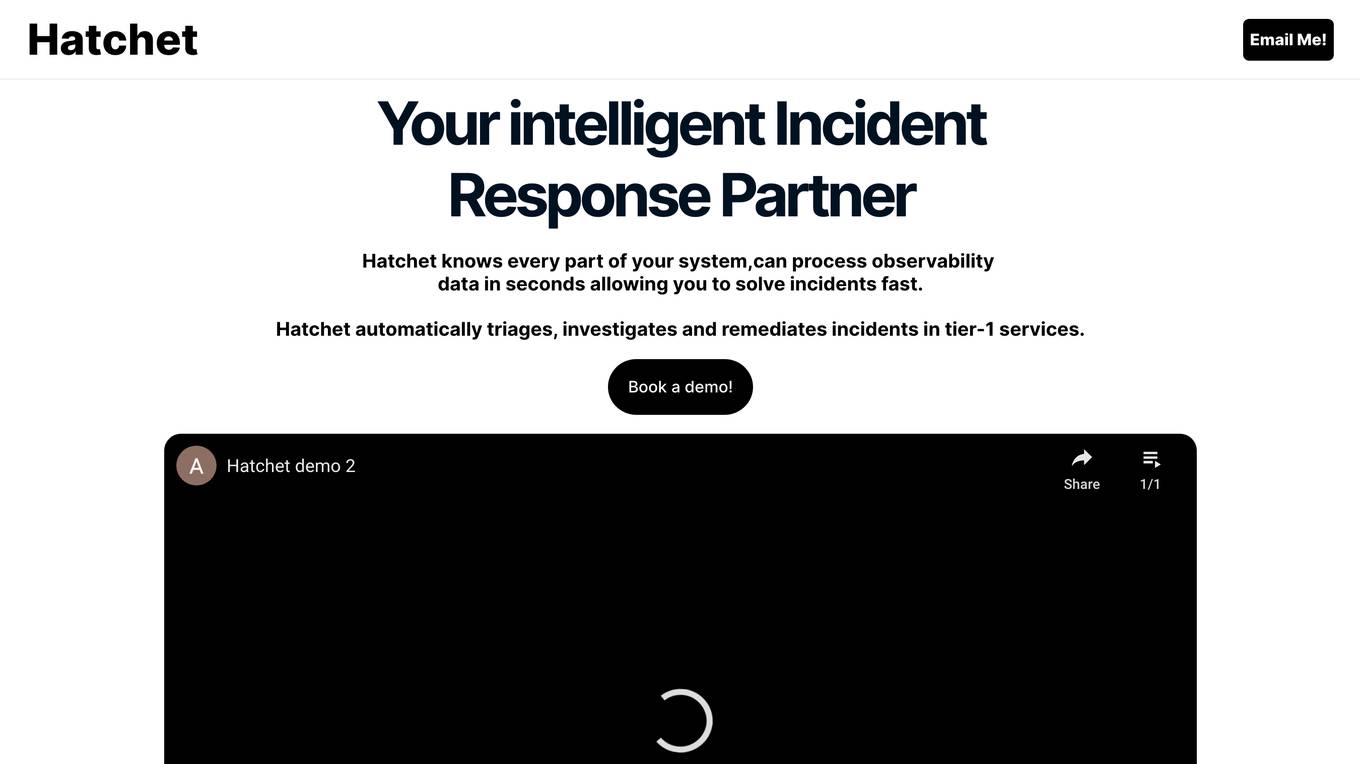
Hatchet
Hatchet is an AI companion designed to assist on-call engineers in incident response by providing intelligent insights and suggestions based on logs, communications channels, and code analysis. It helps save time and money by automating the triaging and investigation process during critical incidents. The tool is built by engineers with a focus on data security, offering self-hosted deployments, permissions, audit trails, SSO, and version control. Hatchet aims to streamline incident resolution for tier-1 services, enabling faster response and potential problem resolution.
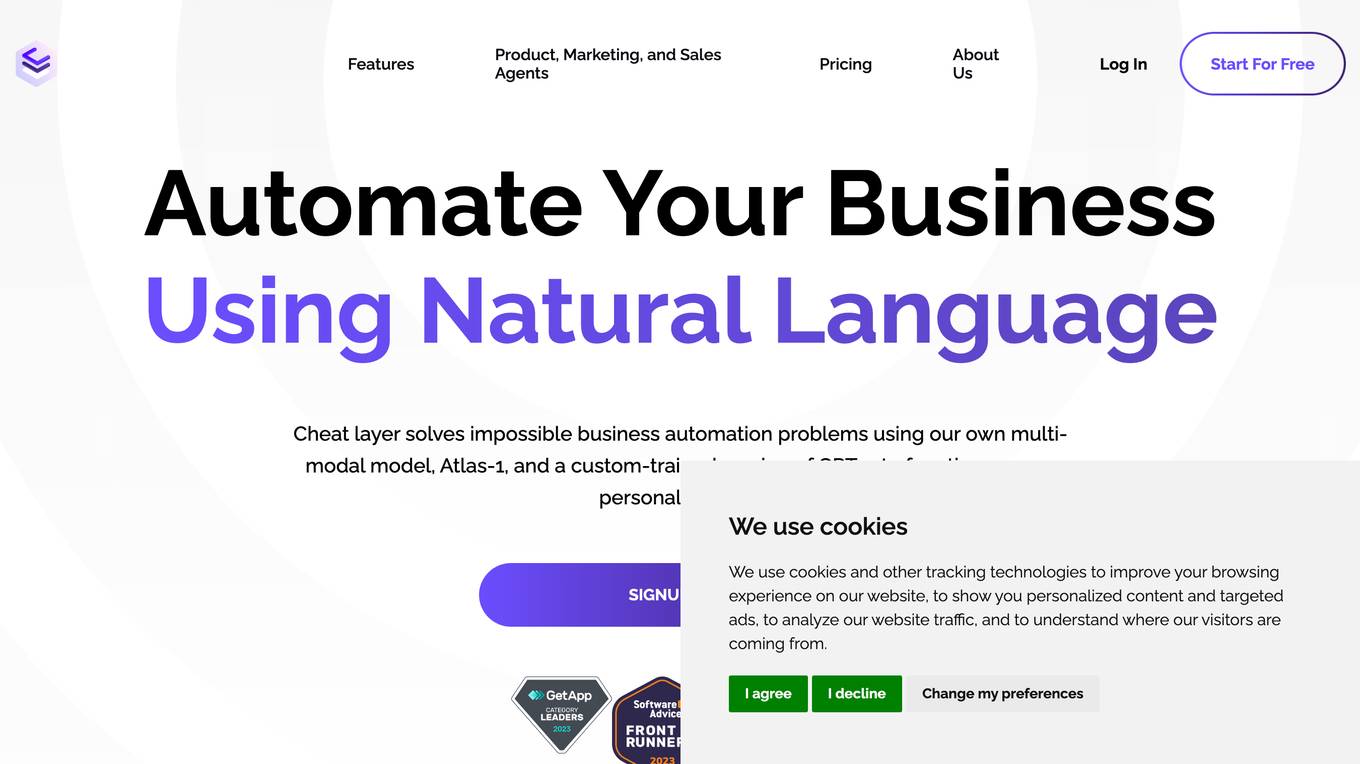
Cheat Layer
Cheat Layer is a no-code business automation platform that leverages AI technology to solve complex automation problems. The platform utilizes a multi-modal model, Atlas-1, and a custom-trained version of GPT-4 to function as a personal AI team. Cheat Layer offers automations in simple language, robust targeting strategies, unlimited autoresponding, and no-code drag-drop interfaces for automating manual tasks. Users can automate various business processes efficiently and effectively.
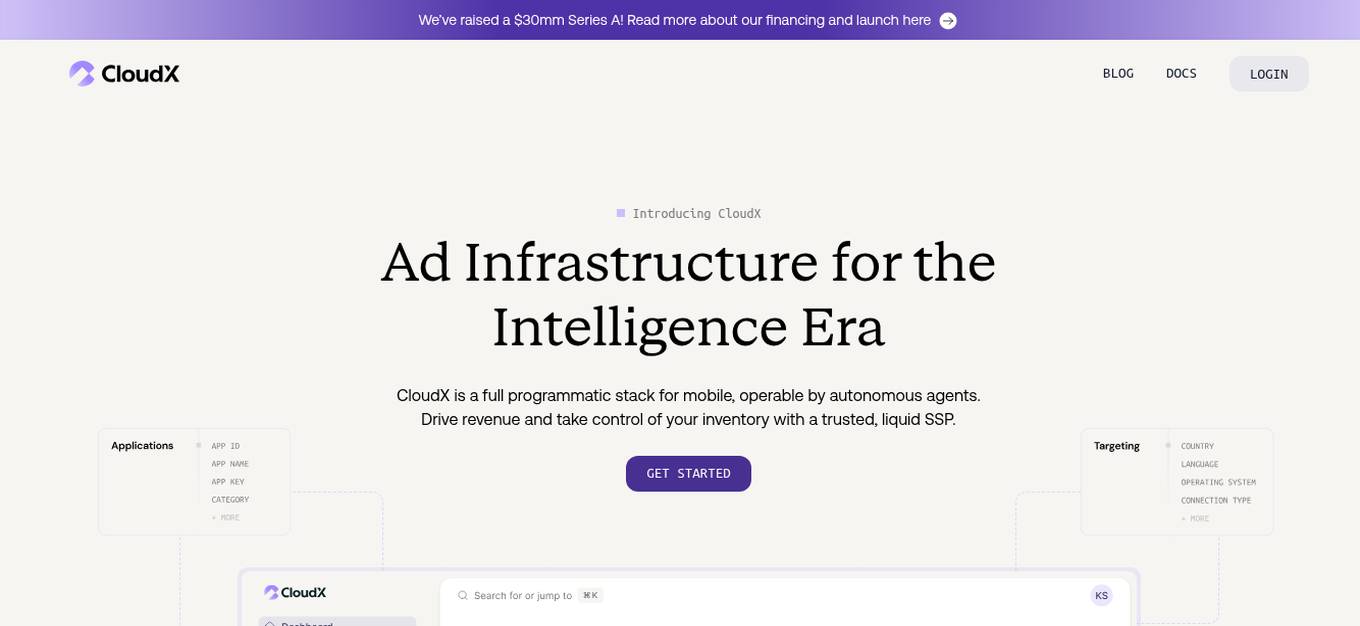
CloudX
CloudX is an ad infrastructure platform designed for the Intelligence Era, offering a full programmatic stack for mobile advertising operable by autonomous agents. It provides transparent auctions, publisher control, and quality ad experiences for mobile publishers. CloudX leverages AI technology to automate mobile SDK integration, reduce integration time, and deliver production-ready code in minutes. The platform enables monetization as code, allowing users to leverage modern software development principles for automation, version control, and A/B testing. CloudX also levels the playing field for non-SDK bidders by providing direct access for omnichannel programmatic buyers to compete alongside SDK bidders in the marketplace.
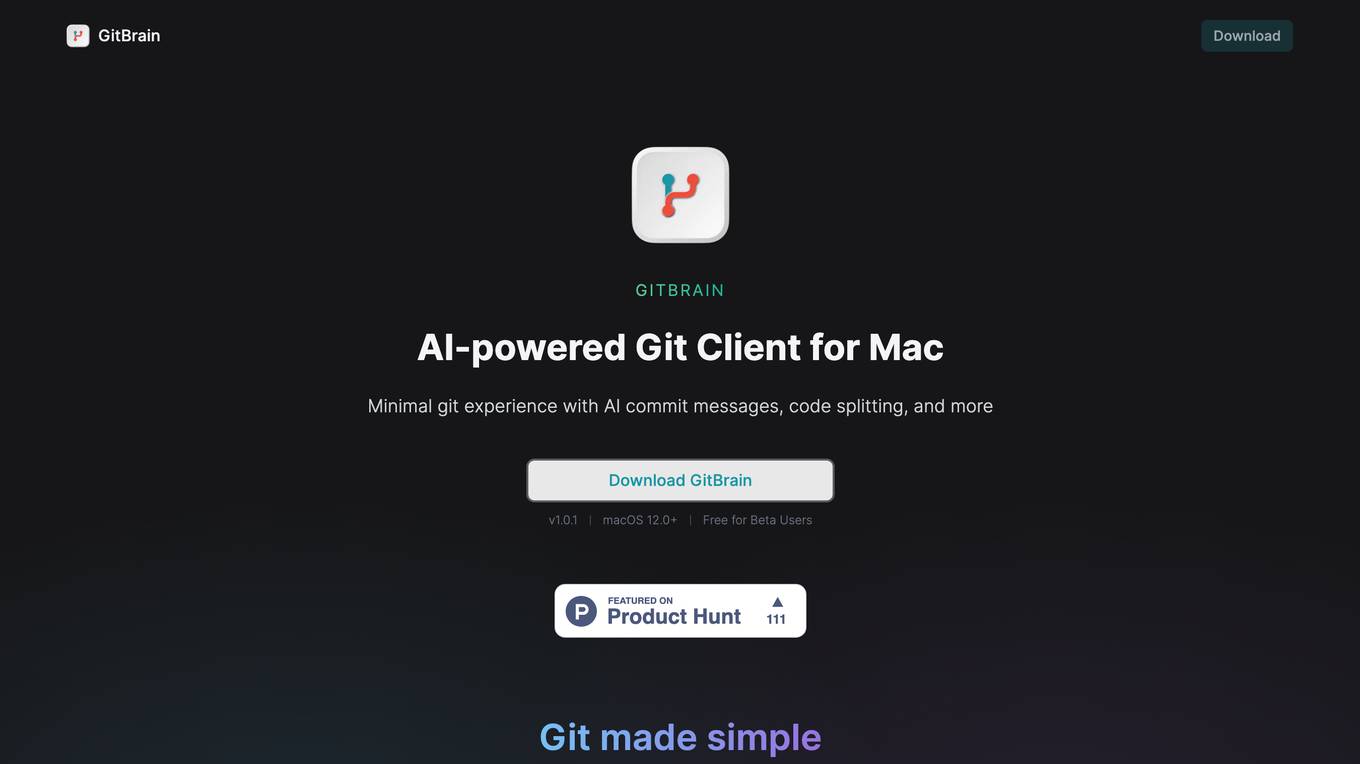
GitBrain
GitBrain is an AI-powered Git client designed for Mac users. It simplifies the Git workflow by offering features such as AI commit messages, code splitting, self code review, auto-detection of projects, and a keyboard-friendly design. The application aims to enhance developer productivity by intelligently managing code changes and providing a seamless Git management experience. GitBrain is optimized for performance on Mac devices, offering a native UI with light and dark mode themes.
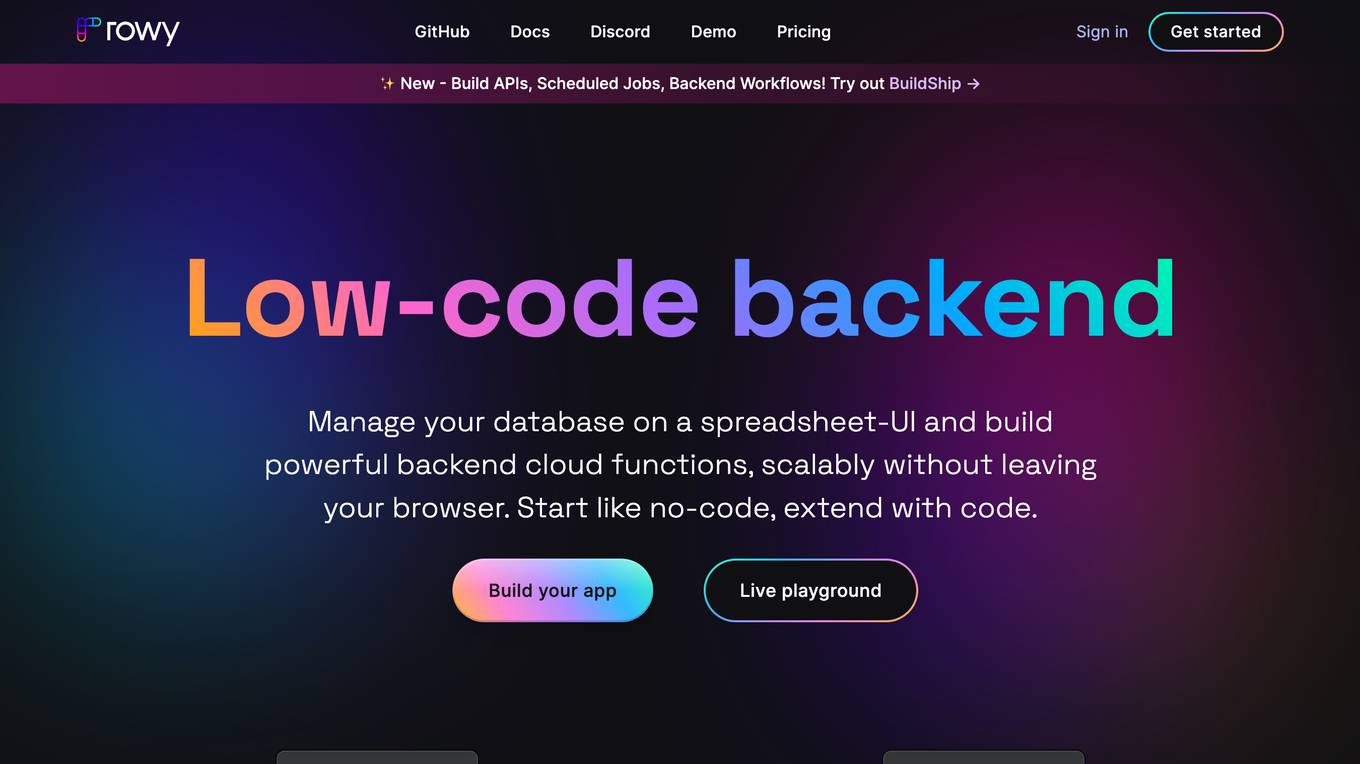
Rowy
Rowy is a low-code backend platform that allows users to manage their database on a spreadsheet-like interface and build powerful backend cloud functions without leaving their browser. It offers a variety of features such as derivative fields, action fields, extensions, webhooks, and integrations with popular tools like Google Vision, GPT-3, Figma, and Webflow. Rowy is designed to be accessible to both developers and non-technical users, making it a versatile tool for building and managing backend applications.
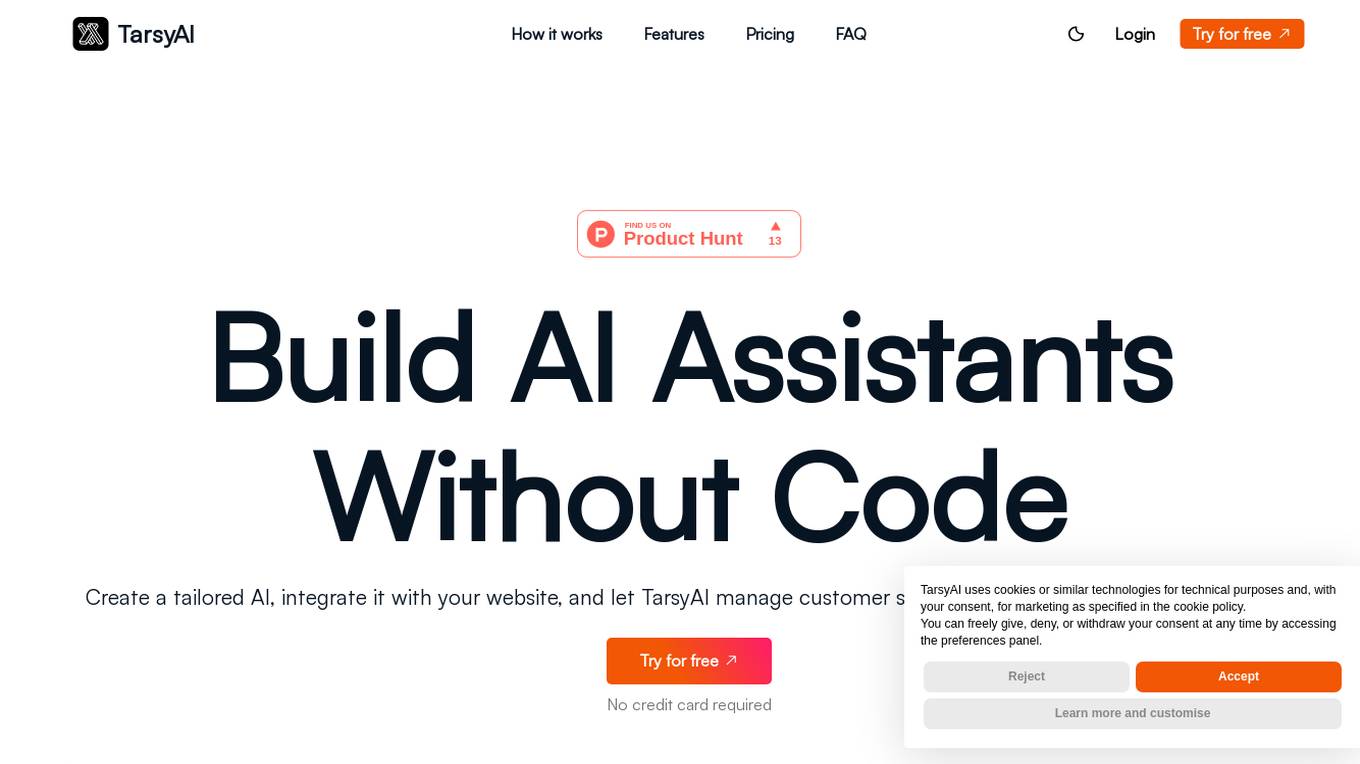
TarsyAI
TarsyAI is an AI tool that allows users to build AI assistants without the need for coding. Users can create customized AI assistants to manage customer support, lead generation, sales, and more. The platform offers features such as training with own data, customizing chat widgets, deploying AI assistants, monitoring and improving performance. TarsyAI supports multiple languages, provides advanced AI instructions, lead generation capabilities, and detailed analytics to enhance user interactions. The tool offers various pricing options to cater to different user needs, with a free trial available for all plans.
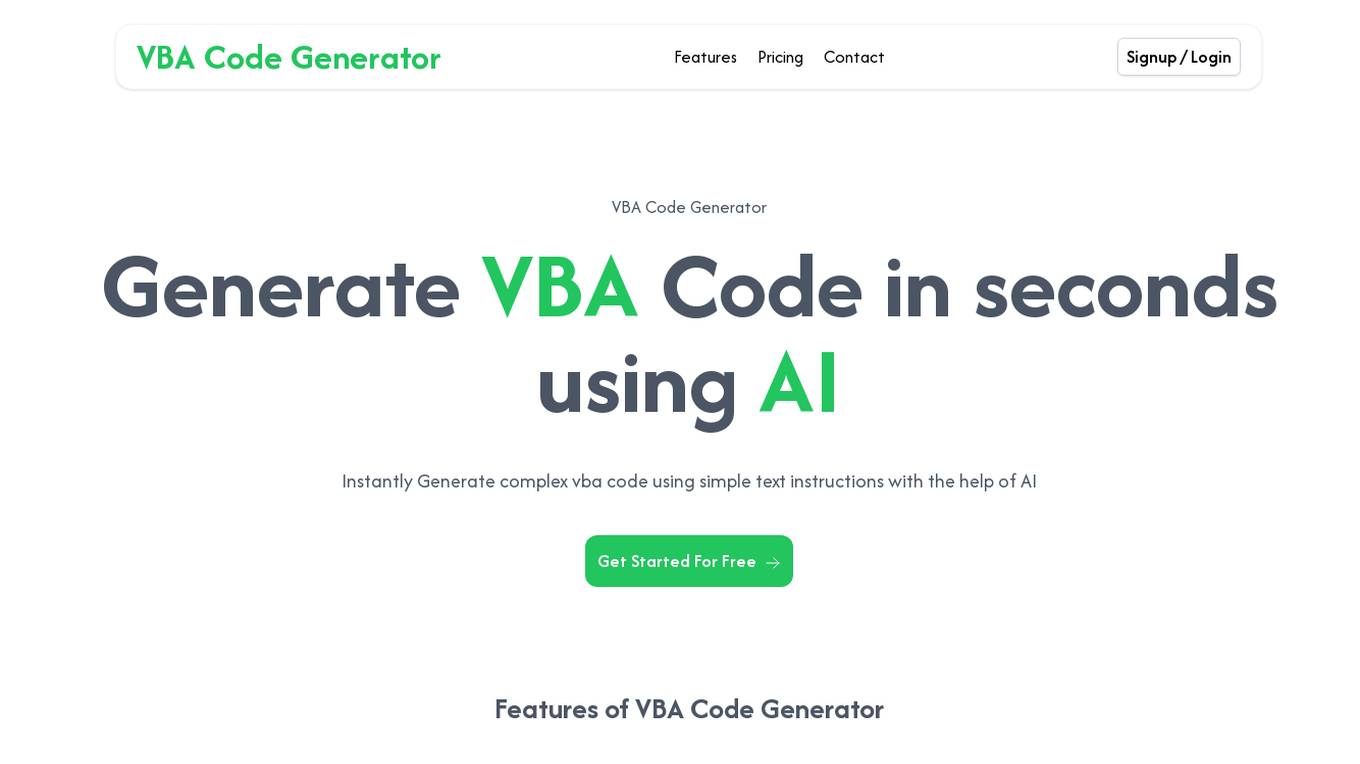
VBA Code Generator
VBA Code Generator is an AI-powered tool that allows users to generate VBA code quickly and efficiently. By inputting requirements, users can instantly generate complex VBA code using simple text instructions with the help of AI. The tool is designed for both beginners and experienced users, offering a versatile application that can handle various VBA tasks, from Excel automation to Access database management. With a focus on saving time and streamlining workflows, VBA Code Generator simplifies the coding process and provides accurate formulas for users' specific needs.
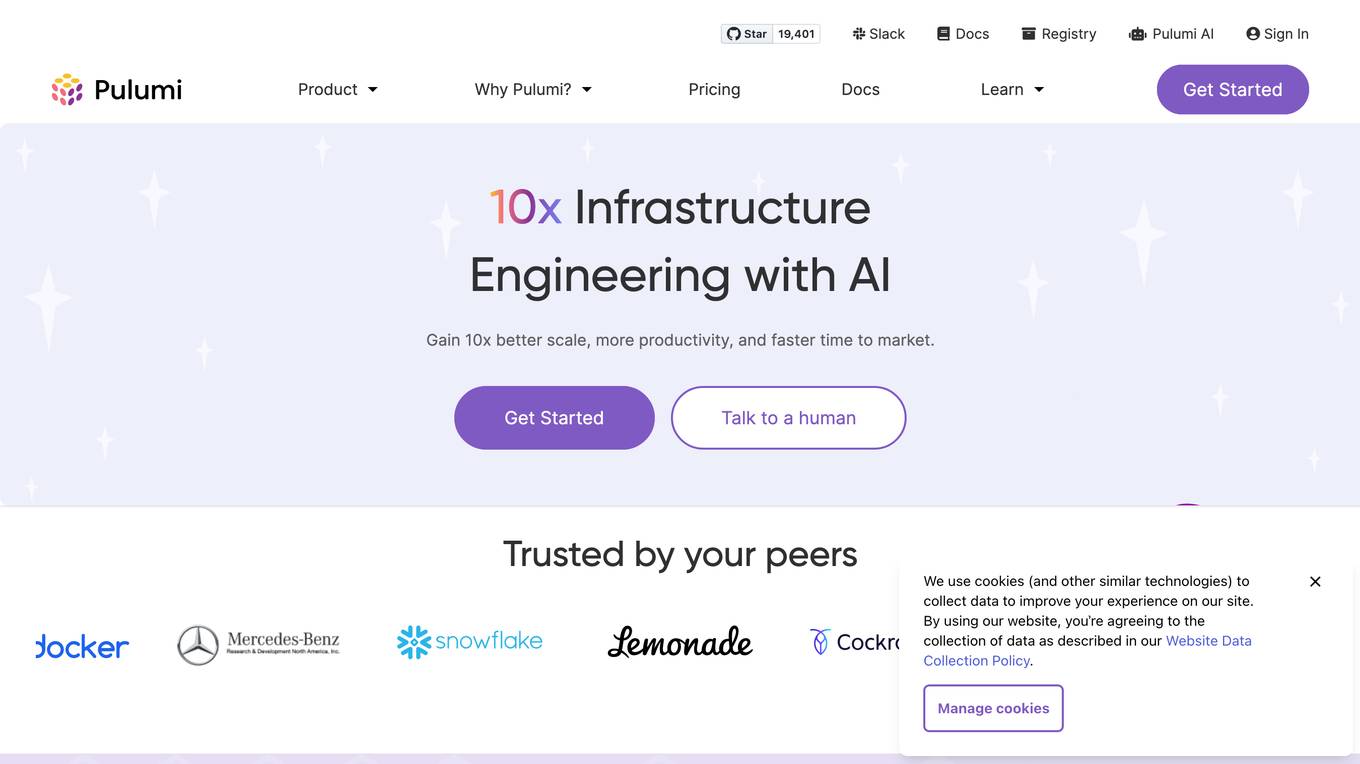
Pulumi
Pulumi is an AI-powered infrastructure as code tool that allows engineers to manage cloud infrastructure using various programming languages like Node.js, Python, Go, .NET, Java, and YAML. It offers features such as generative AI-powered cloud management, security enforcement through policies, automated deployment workflows, asset management, compliance remediation, and AI insights over the cloud. Pulumi helps teams provision, automate, and evolve cloud infrastructure, centralize and secure secrets management, and gain security, compliance, and cost insights across all cloud assets.
1 - Open Source AI Tools
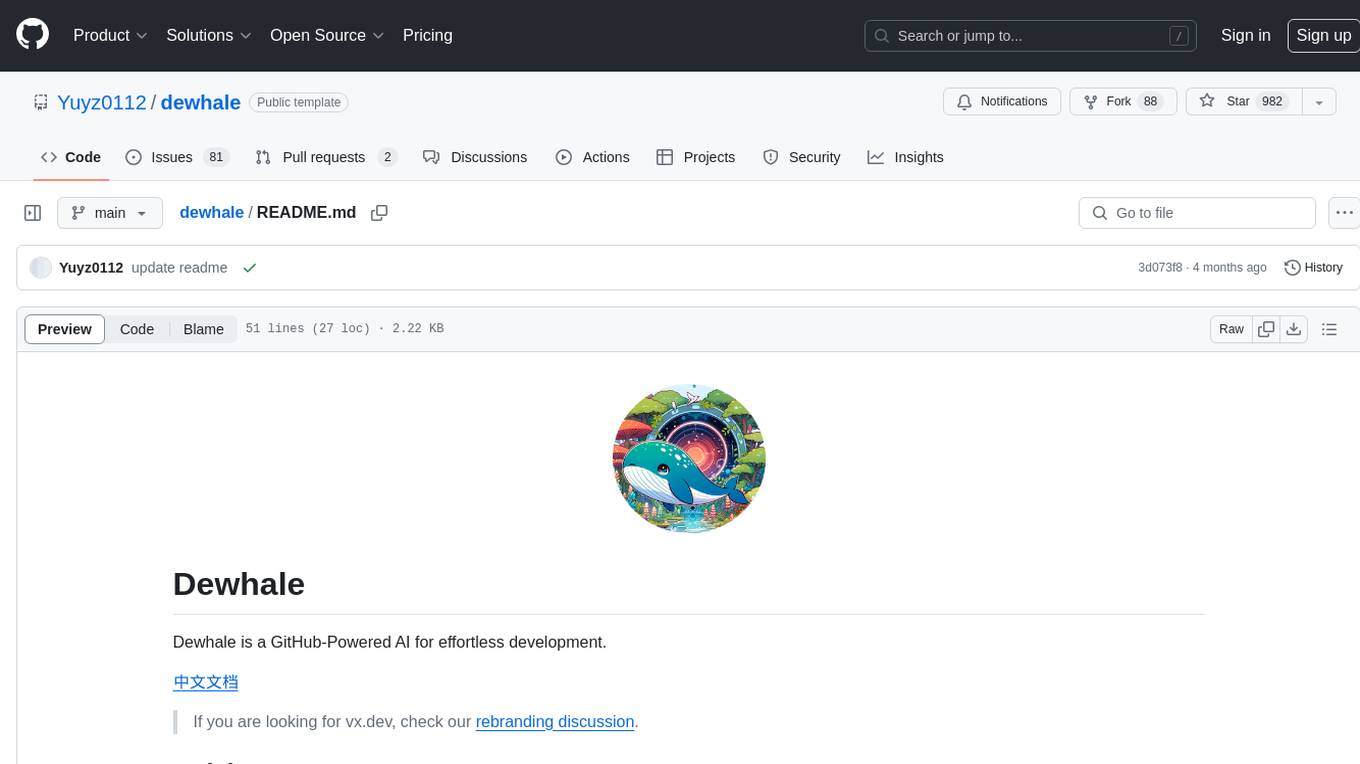
dewhale
Dewhale is a GitHub-Powered AI tool designed for effortless development. It utilizes prompt engineering techniques under the GPT-4 model to issue commands, allowing users to generate code with lower usage costs and easy customization. The tool seamlessly integrates with GitHub, providing version control, code review, and collaborative features. Users can join discussions on the design philosophy of Dewhale and explore detailed instructions and examples for setting up and using the tool.
20 - OpenAI Gpts
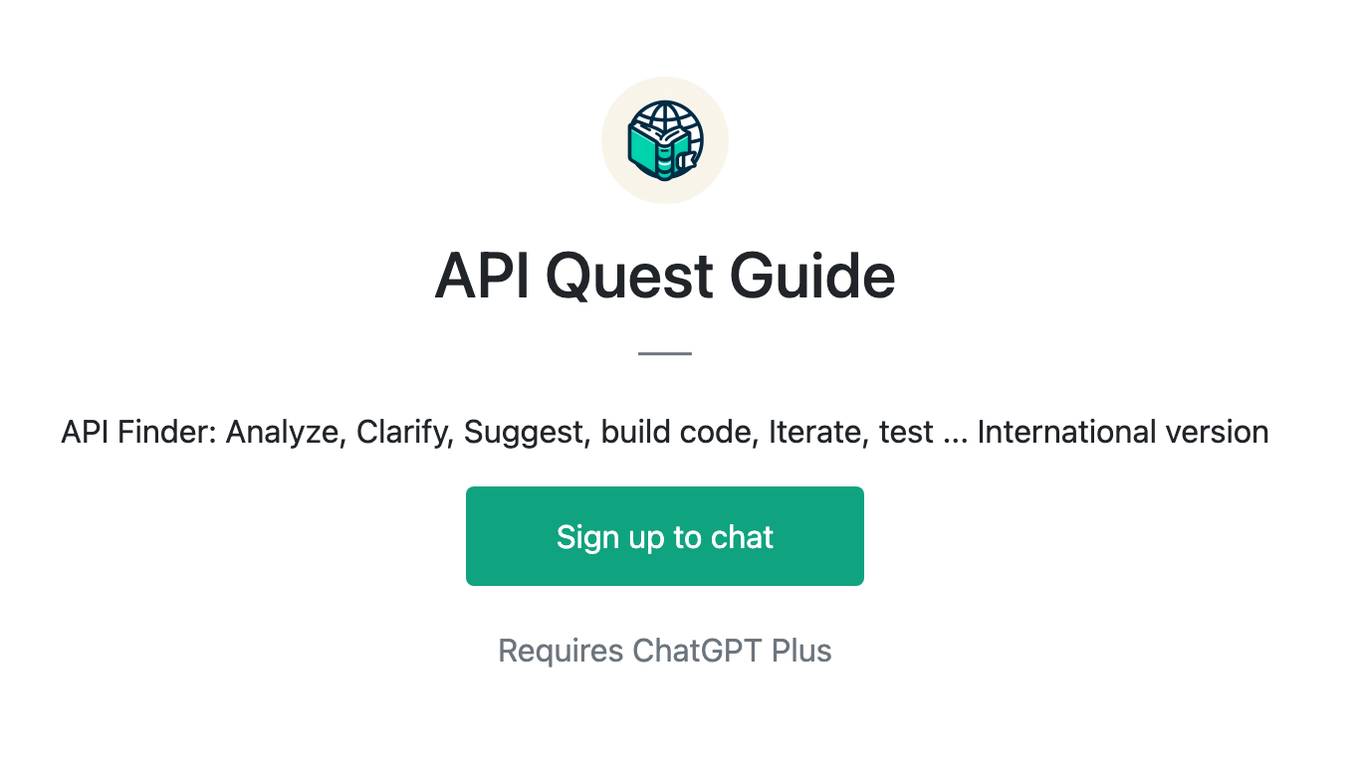
API Quest Guide
API Finder: Analyze, Clarify, Suggest, build code, Iterate, test ... International version

Kiko Digital
Versión digital de Kiko Palomares. Pregunta lo que le preguntarías al verdadero.

Orthographe Pro
Un outil de correction d'orthographe et de grammaire en langue française, outil de traduction, soulignant les erreurs et gérant le code HTML.

Infrastructure as Code Advisor
Develops, advises and optimizes infrastructure-as-code practices across the organization.
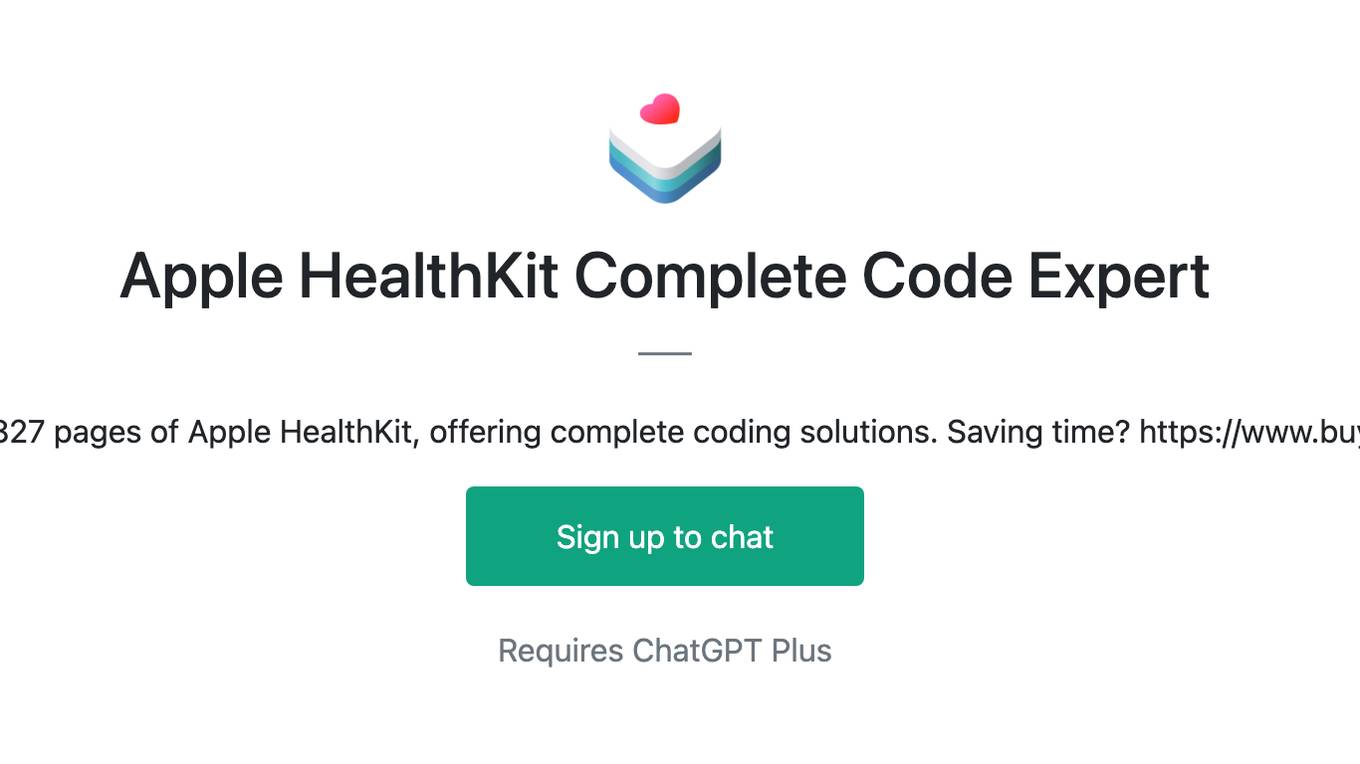
Apple HealthKit Complete Code Expert
A detailed expert trained on all 8,827 pages of Apple HealthKit, offering complete coding solutions. Saving time? https://www.buymeacoffee.com/parkerrex ☕️❤️
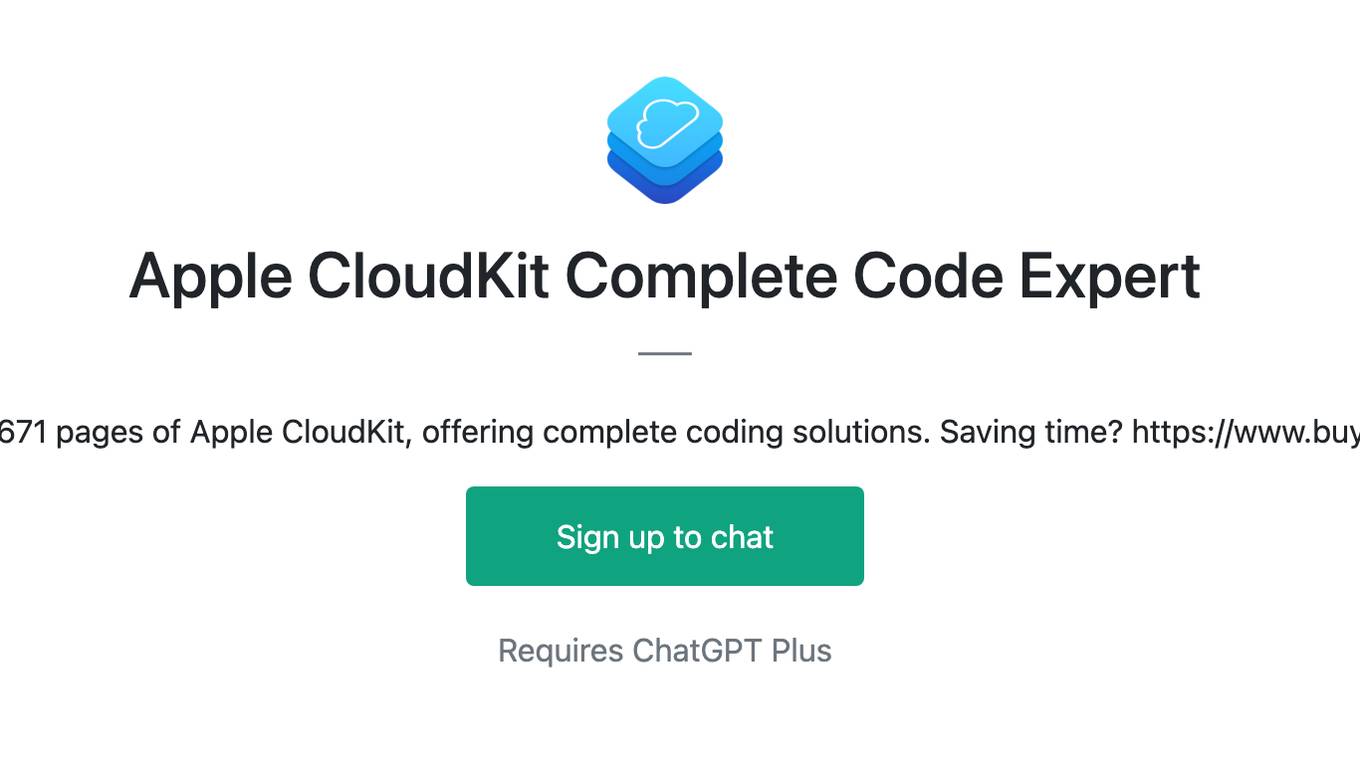
Apple CloudKit Complete Code Expert
A detailed expert trained on all 5,671 pages of Apple CloudKit, offering complete coding solutions. Saving time? https://www.buymeacoffee.com/parkerrex ☕️❤️


